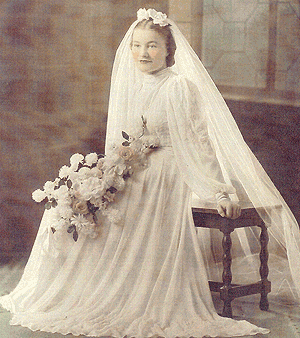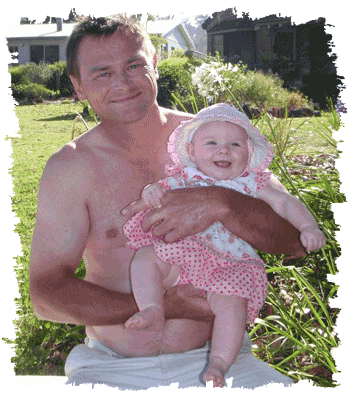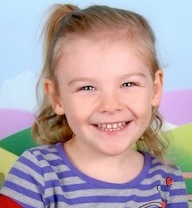1.5.1 FREDERICK JOSEPH McEVOY
Other Family Pages Below
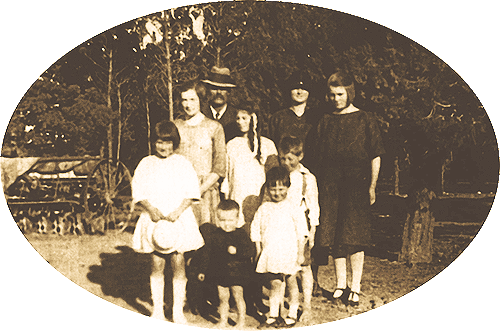
Frederick and Monnie (Anne Edith) with their first 7 children, at Mt Jane.
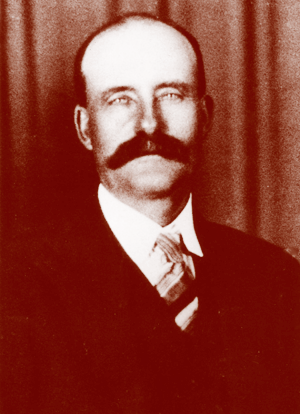
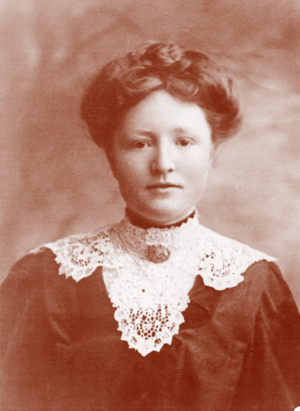

1.5.1 Fred McEvoy,born 2-12-1880 at Wirrabara, son of Joseph McEvoy and Ann Jane Carson, died 25-1-1962 Port Lincoln.
McEVOY.On the 2nd December, at Wirrabara, the wife of Joseph McEvoy, of a son, both doing well.
Express and Telegraph (Adelaide), Wednesday 22 December 1880, page 2
He married Annie Edith Puckridge (Monnie) born 13-5-1890, daughter of Hannah (nee Tapley) and Horace Puckridge of Ulina Station,
died 13-3-1954, on 24-11-1908 at Ulina Station. Both are buried at Streaky Bay Cemetery.
Horace Puckridge was born 10-5-1855 in Mt Barker, SA and died 6-8-1940 in Coulta. He was a seventh child.
On 4-3-1884 he married Hannah Ellen Tapley born 29-3-1862 in Myponga, SA died 4-2-1941.
Annie Edith Puckridge, their 4th child, was born at Lake Wangary and in 1908 married Frederick McEvoy after initial
opposition from her father because Fred was a Catholic and older. They were married at Ulina Station, Warrow,
and went to live at Warrow which is on Eyre Peninsula north of Pt Lincoln.
Annie Edith was apparently always called Monnie or Mona after a pet lamb which she owned.
She is described by her niece, Doreen McEvoy Kennewell,
as a beautiful, gentle lady who took everything in her stride and always looked contented. To find out more on her family, click on her name.
I remember Grandpa McEvoy as always looking very smart in a brown striped suit and waistcoat with a fob watch. He was balding,
wore round glasses, was slim, of medium height and smoked a pipe. He wore a smart felt hat, tilted, as did all the men in those days, and
had a rather long straight moustache. He loved euchre and would stay with my Aunties Joan and Ellie, (also euchre lovers) at Port Germein and walk over
to see us at our beachfront house. Mum said that he was terrible (not the words she used)
when it came to food and always complained about something, no matter what he was served, and she was a very good cook!
We kids all loved his visits, especially because when he left he would always hand us shillings and florins.
Others particularly remember his bent finger and his great way with horses. He was the local vet and Bryan Broad
recalls him using sugar to help get seeds out of the cows' eyes. The family story is told below, by his daughter, Molly.
SCALES BAY: A fire broke out on the property of Mr. J. J. Roberts, occupied by Mr. Fred McEvoy, and, but for the timely assistance of neighbors, great damage might have occurred.....
The cause is attributed to the laying down of poisoned baits for rabbits, which ignited and set fire to the grass, although guaranteed inignitible
by the labels on the tins containing the poison. Mr. McEvoy made an investigation of the poison cart furrow, and found the fire had started from it.
West Coast Sentinel, Friday 22 November 1912, page 2
McEVOY. On March 13, at Streaky Bay Hospital, Mona, beloved wife of Fredrick Mc-Evoy, of Cungena, and loving mother of Dorothy,
Ella, Mary, Nora, Norman, Joan, Frederick, Carmel, Martin and Laurence. Aged 63 years. R.I.P.
Southern Cross, Friday 9 April 1954, page 14
Monnie and Fred had 10 children:
Click on the name to go straight to that family or simply scroll down the page.
1.5.1.1 Dorothy Hazel McEvoy born Pt Lincoln, 31-8-1909 to 17-3-2000
1.5.1.2 Ella Patricia (Ellie) McEvoy born Sunnyside, Warrow, 20-4-1911 to 16-1-1961
1.5.1.3 Mollie Heather McEvoy born Calca, 29-7-1913 to 23-9-1997
1.5.1.4 Nora Clare McEvoy born Sceales Bay, 19-9-1915 to 8-7-1998
1.5.1.5 Norman Frederick McEvoy born Mt Jane, Cungena, 13-7-1918 to 2-3-1980
1.5.1.6 Monica Joan (Joan) McEvoy born Streaky Bay, 19-5-1921 to 2-7-1976
1.5.1.7 Frederick Joseph McEvoy born Streaky Bay, 11-10-1923 to 26-12-1990
1.5.1.8 Carmel Therese McEvoy born Streaky Bay, 10-3-1926 to 4-4-1995
1.5.1.9 Martin Michael McEvoy born Streaky Bay, 21-8-1928 to 27-10-2009
1.5.1.10 Laurence Norton McEvoy 13-9-1930 to 18-5-2002
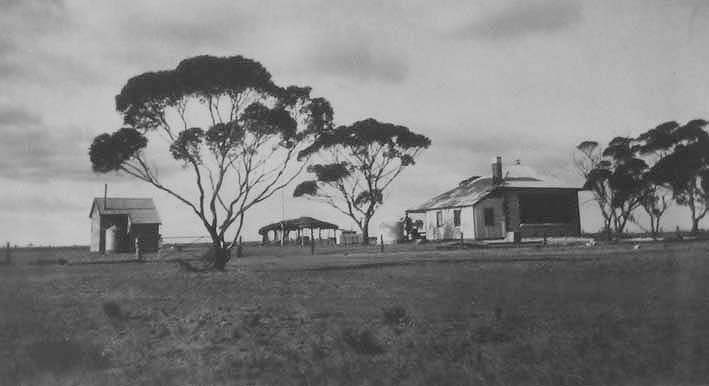 (From the Manning Index of SA History)The 'Cungena Run' was established by Anton Schlink circa 1864 (lease no. 1689).
He had held the land since December 1861 (lease no. 976). An Aboriginal word for 'rock holes'.
(From the Manning Index of SA History)The 'Cungena Run' was established by Anton Schlink circa 1864 (lease no. 1689).
He had held the land since December 1861 (lease no. 976). An Aboriginal word for 'rock holes'.
The Cungena school was opened in 1920 after the September holidays by Miss Margaret Guidera with 10 children
including Dorothy, Ellie, Molly and Nora McEvoy, Albert Voumard, Tom, Angus and Kath Quinn, Evelyn and Lindsay Hollamby.
The photo comes from the Cungena Hall. The building on the left was erected in 1920 and the new school on the right was built in 1927.
It closed in 1964 after which the children were driven to either Wirrulla or Poochera.
The school is now a private residence. See Cungena Country by Agnes Dickson, page 26.
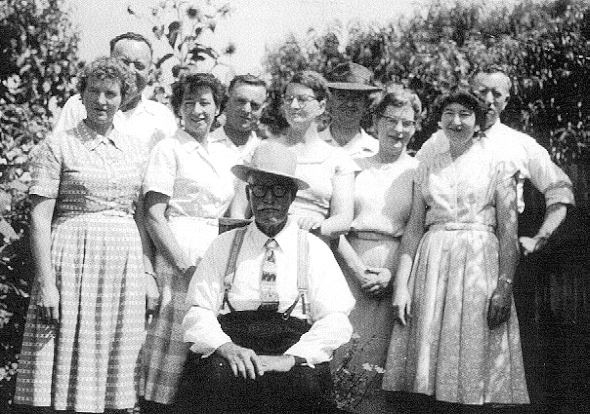
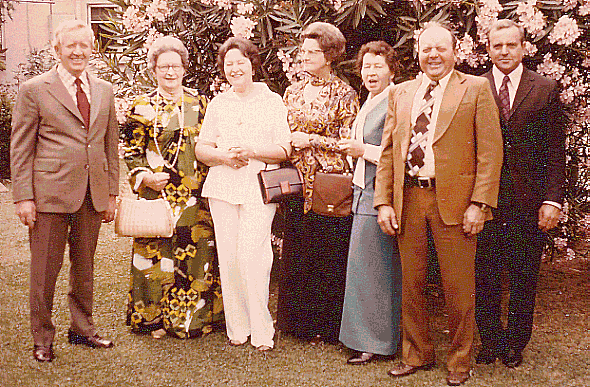
Photos: 1954, 1974
1.5.1.1 Dorothy McEvoy born 31-8-1909 Pt Lincoln,
died 17-3-2000, married, on 18-5-1931, Hugh Archibald Patterson (Archie) born 14-11-1907, 100 yrs old on November 14th, 2007, died July 24, 2009.
PATTERSON - McEVOY WEDDING
At Cungena, on May 18, Hugh Archibald, eldest son of Mr. and Mrs. H. B. Patterson, of Cungena (late of Murray Bridge),
was married to Dorothy Hazel, eldest daughter of Mr. and Mrs. F. J. McEvoy, of Cungena. The Rev. Father Toal officiated.
The bride, who was given away by her father, was gowned in deep-cream crepe satin, with long tight-fitting sleeves.
The uneven corsage was trimmed with tiny buds of orange blossom and silver leaves, while the skirt
fell in soft flares to the ankles. The veil, which was lent by Mrs. Davies, of Port Lincoln, was arranged
to form the train, fitting the head cap fashion, with a coronet of orange blossom. She carried a sheaf of
deep cream chrysanthemums and daisies, with streamers. The bridesmaids were Miss Ella McEvoy (sister of the bride)
and Miss Mary Quinn. Mr. V. C. Sigmont. of Adelaide, was best man, and Mr. F. Barret, of Yantanaby, groomsman.
The bride's travelling frock was brown satln, with hat and shoes to match.
Chronicle, Thursday 18 June 1931, page 60
From the ABC website, Posted Wed Nov 14, 2007 8:38am
Archie Patterson is a former farmer and billiard hall owner who says he has memories stretching back to 1911, when he collected eggs as a child.
Mr Patterson attributes his longevity to eating fig jam.
"It was the first jam made, and it will be the last one as far as I am concerned," he said.
"I have that for breakfast every morning; fig jam and cream, and plenty of love."
Mum always said that Auntie Dorothy could go to the cupboard and get a couple of tins
and make a delicious meal for any number of people out of almost nothing. She was a genius in the kitchen.
Dorothy and Archie had 7 children:
1.5.1.1.1 Hazel Lorraine Patterson
1.5.1.1.2 Pamela Anne Patterson
1.5.1.1.3 Patricia Evelina Patterson
1.5.1.1.4 (Hugh) Ian Patterson
1.5.1.1.5 Gabrielle (Gay) Margaret Patterson
1.5.1.1.6 Gregory Michael Patterson
1.5.1.1.7 Mary Catherine Patterson
1.5.1.1.1 Hazel Patterson born 15-2-1932 married Darrell Francis Gillings d. 31-10-2018, 6 children:
1.5.1.1.1.1 Francis Lloyd Gillings married Gail Denise Jenner, 3 children:
1.5.1.1.1.2 Mark Gerard Gillings born 12-10-1956
1.5.1.1.1.3 Jacinta Marie Gillings married Craig Lynch, 2 children:
1.5.1.1.1.4 Ramon Laurence Gillings and Donna
1.5.1.1.1.5 Damian Patterson Gillings
1.5.1.1.1.6 Luke John Gillings and Liz
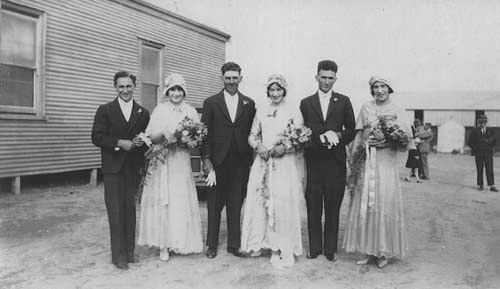
1.5.1.1.3 Patricia Everlina Patterson born 10-8-1936 died 29-4-1999, interred North Shields Garden
Cemetery, married Ray Stanley Jones, 3 children:
1.5.1.1.4 Hugh Ian Patterson born 7-6-1938 died 12-9-2010 in Port Lincoln, RIP dear cousin, married Margaret Brown, 6 children:
1.5.1.1.4.1 Karen Lee Patterson married Stephen Martin
1.5.1.1.4.2 Craig Patterson (deceased)
1.5.1.1.4.3 Patricia (Trish/Tricia) Patterson married Brenton Cole, 4 children:
1.5.1.1.4.4 Cherine Patterson married Michael Pearson
1.5.1.1.4.5 Vanessa Patterson married Michael Blacker, 3 children:
1.5.1.1.4.6 Matthew Patterson married
Ros Sidler, 3 children:
Since Matthew and Ros are related via one set of great, great grandparents, the family have 2 entries in the family index,
one for the mother's number and one for the father's.
1.5.1.1.5 Gabrielle Patterson married Robert Francis Heath who died 7-2-1994 aged 60 years, 4 children:
1.5.1.1.6 Greg Michael Patterson born 29-1-1948 died 2-6-2022 Pt Lincoln,
married Karen Vicki Haskett d. 16-1-2017 aged 67 yrs, 2 children:
1.5.1.1.7 Mary Patterson born 2-8-1949, married Robin Mattner born 29-1-1947, 3 children:
1.5.1.2. Ella (pictured right on her wedding day)
born 20-4-1911 at home at Warrow, died 16-1-1961, married William Anthony (Jock) Hewitt Little born Chief St, Brompton 11-2-1904, died 26-7-1968 aged 64 years.
Auntie Ellie was a fabulous dressmaker. She made all the dresses for Molly's wedding and the non wedding dress for my mother. Mum said that she could put a piece of material on someone and cut out a dress on the spot. When times were tough (and they often were) the sisters would buy one dress,
unpick it and cut out copies. They would also unpick winter coats and resew them on the reverse side so that they would last longer. Auntie Ellie and Uncle Jock leased the hotel at Pt Germein before Mum and Dad and they worked there together for a couple of years. They also leased the Pt Germein
Palais and my father took over from them. Jock and Ellie had no children and are buried at Pt Lincoln Cemetery.
Cungena, June 3, 1922.
Dear Wattle Blossom,ΡI enjoyed reading the page for the children, and I would like to join your Club if you will accept me.
I was l1 years old on the 20th of April. We drive five miles to school. I have a little roan pony. I am enclosing 6d. I liked reading
about the melon cutting. Our school is in close to the railway siding. Daddy has not finished ploughing yet. We had Empire Day last Friday.
Your loving friend, ELLA McEvoy
Southern Cross (Adelaide, SA : 1889 - 1954), Friday 30 June 1922, page 18
Auntie Molly tells of family life at Cungena for Fred and Monnie and the family in this article which appeared in The Port Lincoln Times
on page 6 on Wed, Jan 20, 1982 as "Going Back..with Daphne".
Mount Jane first farm at Cungena
It is difficult to realise that less than 75 years ago, most of Eyre
Peninsula was acres upon acres of scrub as far as the eye could see.
It took a special kind of person to go into that scrub with a vision of changing it to productive farming land.
Joseph and Eliza McEvoy trekked from Hammond to the West Coast with their eight children, four boys and four girls, and made their home
in the Hundred of Mortlock in the late 1890s. [NB It was actually 1903 when the family came from Hammond.]
Fred, who was born at Wirrabara, was the oldest of the children and Charlie was the youngest.
Seventeen year old Fred went to work for Mr Jim Cuddeford at Warrow for three shillings per week and Rose, 15, went to work for another family for two shillings a week.
Both had been working for some time before the family came to the peninsula and most of their money was given to their parents to "keep the wolf from the door."
Fred could scarcely believe his good fortune when Mr Cuddeford increased his wages to four shillings a week plus a small share of the crop.
Throughout his lifetime Fred spoke with fond memory of Jim Cuddeford who had treated him more as a brother than as a workman.
Fred fell in love with a pretty girl, Mona (Monnie) Puckridge, second daughter of Hanna and Horace Puckridge of Ulina Station
who were against the match because they were Church of England and Fred was Roman Catholic.
Jim was a great help as were Monnie's brothers Harry and Reg.
Rose, too, did her share for her big brother and in 1907, Fred and Monnie were married at Ulina Station.
Fred took his bride to a little cottage made available to them by Jim Cuddeford opposite the Warrow Hotel.
Their first child, a daughter, was born at a nursing home, "The Castle," in Port Lincoln.
A second daughter was born but this time the event took place in their cottage with Monnie's mother-in-law, Eliza McEvoy, as midwife.
Fred and Monnie decided to move to a sharefarming position with a Mr Roberts of Sceales Bay, more or less following Fred's parents who had previously moved to the area.
Two more daughters were born to the couple, the first being Mary Heather who was to be known as Mollie.
About this time Fred got itchy feet.
A war was being fought, the railway was being put through from Port Lincoln to Thevenard, and land was being opened up along the railway line.
Monnie had been a good scholar and had also been tutored by her aunt, Maud Morgan, after her formal schooling had ended.
So it was Monnie who wrote to the Government asking for details and maps of this land that Fred talked of.
Rose came to stay while Fred set off to "select" a property, guided by the information that had been sent.
He had a gun, 200 gallons of water, sleeping gear, food, a saddle hack, a mare in a spring cart and an "expect me when you see me" goodbye.
He was strong and healthy, a good bushman, and had his well trained dog with him.
Fred had no trouble in finding the highest point marked on one map as a "trig" point in a pine forest, in this wild land.
This was called Mount Jane, which name he also gave to his farm, and when he arrived he made camp and slept in the cart by his water tank.
Morning came and with clear blue eyes, he viewed his surroundings which were miles upon miles of trees, with the Gawler Ranges making a backdrop to the northeast.
After breakfast, he hobbled his cart mare, put a saddle on his hack and set off to explore.
Twice he rode around his block, Mount Jane.
There were trees of every description, from oak to mallee and wild peach.
It was the tenth day when Fred arrived back at Sceales Bay to tell his story to Monnie and Rose.
"The railway line runs along the eastern boundary. The block is not big but I am sure I could get even more land. There are wild turkeys, pigeons,
all the birds imaginable, wild flowers of every kind, and several acres of plains."
So early one morning a "circus" left Sceales Bay bound for Mount Jane, Cungena.
There were men on horses, bells ringing on others, loaded wagons, two cows, hens with chickens in small coops, two pigs, dogs barking and whips cracking.
There were Monnie and the four children, the youngest a baby in a fish basket which had no doubt been filled many times with whiting from the clear waters of Sceales Bay.
Rose, with the reins in her small strong hands, drove two horses in a hooded buggy, and led the procession on their way.
"I well remember the horses with their big eyes looking towards me, their noses in big tubs of water, slobbering, blowing, biting, too many horses and not enough tubs," Mollie said.
"We had reached our destination."
A big government shed stood in a small clearing and birds and horses and men all seemed to be on the move.
A house of split pine and clay was built under the shed which was open on all sides and had a tank at each corner.
The house was beautifully cool in summer.
"Work started on this land as soon as we arrived, it seemed to me. Food in plenty seemed to come as magic on our plates."
There was great excitement when Grannie and Grandpa McEvoy with Charlie came to live next door, and it seemed no time before Edwin McEvoy and
his wife Alice returned from Western Australia.
Some of Fred's other sisters and brothers married and sons were born.
Grannie McEvoy became ill and the family gathered at Kildalton, the grandparents' home.
"Mother and Aunt Alice talked quietly together as they often did. I don't remember much about the funeral, just that there were many tears," Mollie said.
WORKED TOGETHER
After Grannie Eliza died, Monnie and Alice helped Grandpa and Uncle Charlie which meant extra washing, cooking and cleaning for them.
The men owed a debt to their wives who stood by them and worked with them, their beautiful hair bleaching in the hot summer sun, their fair
complexions hardening and drying," Mollie said.
It was suggested that a housekeeper be employed and the first one, Eileen Allan, married Len Tomney.
Eileen's sister Kathleen came to take her place and after a time she and Charlie married.
Mollie's two older sisters were sent to Port Lincoln for schooling, and that was a sad day for parents and children.
However, crops of wheat grew and yielded well and everyone, mothers and children alike, sewed the tough bags with strong twine.
The arrival of groceries was an exciting time.
Great tea chests packed with a year's supply of everything were landed at Cungena railway siding, boxes and boxes each containing two four gallon
tins of kerosene for lamps, and several bags of flour and sugar, all branded with the grocer's name, SO Bielby, Adelaide.
Jam came in 5 pound tins and golden syrup (poorer people ate molasses) in four gallon tins.
The war ended and young men returned-Tom Lee, Charlie Cotton, Wally Thorpe, Ted Burke, Frank Voumard, and Ed Barratt whose brother Jack was one of the boys who did not come home.
"I can still picture their big hats and uniforms with the rising sun on them," Mollie said.
"It was these young men, our mother told us, that saved our country and let us stay at Mount Jane without fear of anything in this world. Wonderful stories we listened to, and these sessions ended
with a little prayer of thanks for them all," Mollie said.
The government put up sheds similar to the one on Mount Jane, for the returned soldiers.
Underneath the sheds were built houses of pug and pine, sometimes with straw mixed in with the pug, and big stone chimneys.
An epidemic of pneumonic influenza went through Australia. The only person to die in the district was the doctor at Streaky Bay.
Monnie made brown paper singlets covered with lard which the children wore for protection.
Mollie said, "Mother got the flu but recovered. I remember her kneeling at the foot of her bed to say prayers, her beautiful auburn hair
falling to her waist, and her nose started to bleed. I was terrified."
Mail was brought by the train and Fred collected it as the crew passed it out (the train did not stop) and he gave them any letters to post.
Monnie wrote to her "dear parents" every week and incoming mail always included The Chronicle.
Cungena School opened and the two older girls returned from Port Lincoln.
Cungena Hall was built and Fred joined the Streaky Bay district Council as councillor for the Chandada Ward.
He was the first registered veterinarian in the area and travelled extensively on horseback caring for animals of every kind.
His blood stock was known far and wide and the services of his stallions-draught, racing or pony-were sought after.
Their shining coats were a picture as they travelled with a martingale round their girth.
The martingales were eight inches wide in red, white and blue, and were to prevent the stallions biting the saddle mare.
Fred was proud of his coach drawn by six evenly matched cream horses.
He reared horses with great skill and kindness and usually the wildest horse to break was his favourite in the end.
The Tod pipeline was put through Cungena on its way to Thevenard and with it came some of the worst type of men in Australia.
"The men would fight and drink and curse. Often one would be lying in the roadway which made the horse shie as we went past on our way to school.
"When the camp was at Minnipa, the cook took a dislike to some of the men and poisoned them with strychnine in their sugar. About six men died," Mollie said.
Fred was appointed a Special Constable in the area and followed the camp for about 30 miles from about Minnipa to Wirrulla. He rode a black horse called Jet and carried a revolver.
He was not a big man, but was strong and was able to give orders in a manner that was accepted and obeyed.
One morning when the girls were driving to school, a man was in the middle of the road, waving his arms and jumping up and down to stop them.
The frightened children whipped up the horse and dashed past.
Next thing, the air was full of flying stones and dirt as dynamite exploded. The man had been trying to warn them to stop as blasting was in progress.
The McEvoy brothers had dog and cock fights as sports.
One of Fred's best dogs was Boozer who was a joy to behold in a fight.
Fred had found the dog tied by a piece of string to a post outside Cungena Hall the day after a race meeting. "Boozer' seemed an appropriate name.
The children skipped with a rope and while one child held one end of the rope, Boozer held the other "for hours on end" and developed massive jaw muscles.
Mollie said, "Dad told us not to tell our relations about the skipping so they didn't know about Boozer's strong jaws."
The girls grew up and young men came courting which did not impress Fred who carefully chaperoned his daughters.
Many a young man was told he was not good enough for whichever daughter he was particularly interested in.
Mollie married Norman Smart and became a railwayman's wife.
Her father, Fred, died in 1962, aged 81.
A few weeks before , he had told her, "After a person dies, there's usually a write up saying what a fine fellow he was and
the person is never there to hear it. One thing I'm pleased about in my lifetime is when I was presented with my life membership badge of the Cungena Racing Club."
Monnie and Fred raised a family of six daughters and five sons on their property at Cungena.
1.5.1.3. Molly Heather McEvoy
born 29-7-1913 at Sceales Bay died 23-9-1997 buried Happy Valley Cemetery, Pt Lincoln,
married Norman Goodes Smart born 17-8-07 died 10-5-82, at St Mary of the Angels Church, Pt Lincoln, on 8-5-1937, 6 children:
1.5.1.3.1 Gerald Thalee Smart born 31-3-38 died 8-3-1996
1.5.1.3.2 Yvonne Raylee Smart born 26-8-42
1.5.1.3.3 Paul Shamlee Smart born 14-9-44
1.5.1.3.4 Jeffrey Norman Smart born 20-7-46 died 6-11-65
1.5.1.3.5 Anita Mary Smart born 26-5-50
1.5.1.3.6 Delores Heather Smart born 21-8-52
1.5.1.3.1 Gerald Smart married Elaine Chase on 1-2-60, 3 children:
I found this on the front page of The West Coast Sentinel of January 18, 1951:
Boy thrown from horse
Gerald Smart, 12, of Port Lincoln. sustained slight concussion when he was thrown from a horse on January 2,
and was detained at the Streaky Bay Hospital for a day. Gerald was visiting Mr. and Mrs. Pat Holland, of Courela, at the time.
1.5.1.3.1.1 Belinda Smart married Shaun Thompson, 3 children:
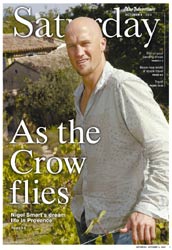 1.5.1.3.1.2
Nigel Smart born 21-5-1969, married Sarah Davies, 3 children:
1.5.1.3.1.3 Jason Smart, 1 child:
1.5.1.3.1.2
Nigel Smart born 21-5-1969, married Sarah Davies, 3 children:
1.5.1.3.1.3 Jason Smart, 1 child:
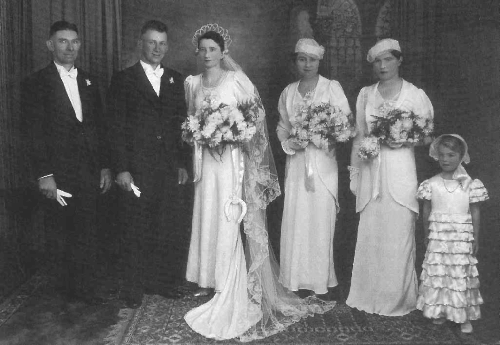
1.5.1.3.2 Yvonne Smart married Allan Charles Newman, died 4-10-2015, 2 children:
1.5.1.3.3 Paul Smart married Susan Quin, 3 children:
1.5.1.3.4 Jeffrey Smart was killed in a car accident at age 19 in 1965.
1.5.1.3.5 Anita Smart married Matthew Dempsey on 6-5-72, 2 children:
1.5.1.3.6 Dolores Smart married Kenneth Lewis on 15-8-71, 3 children:
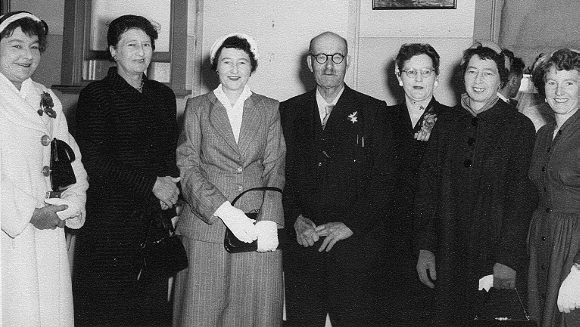
The McEvoy girls: Ellie, Molly, Joan, Grandfather, Dorothy, Nora, Carmel
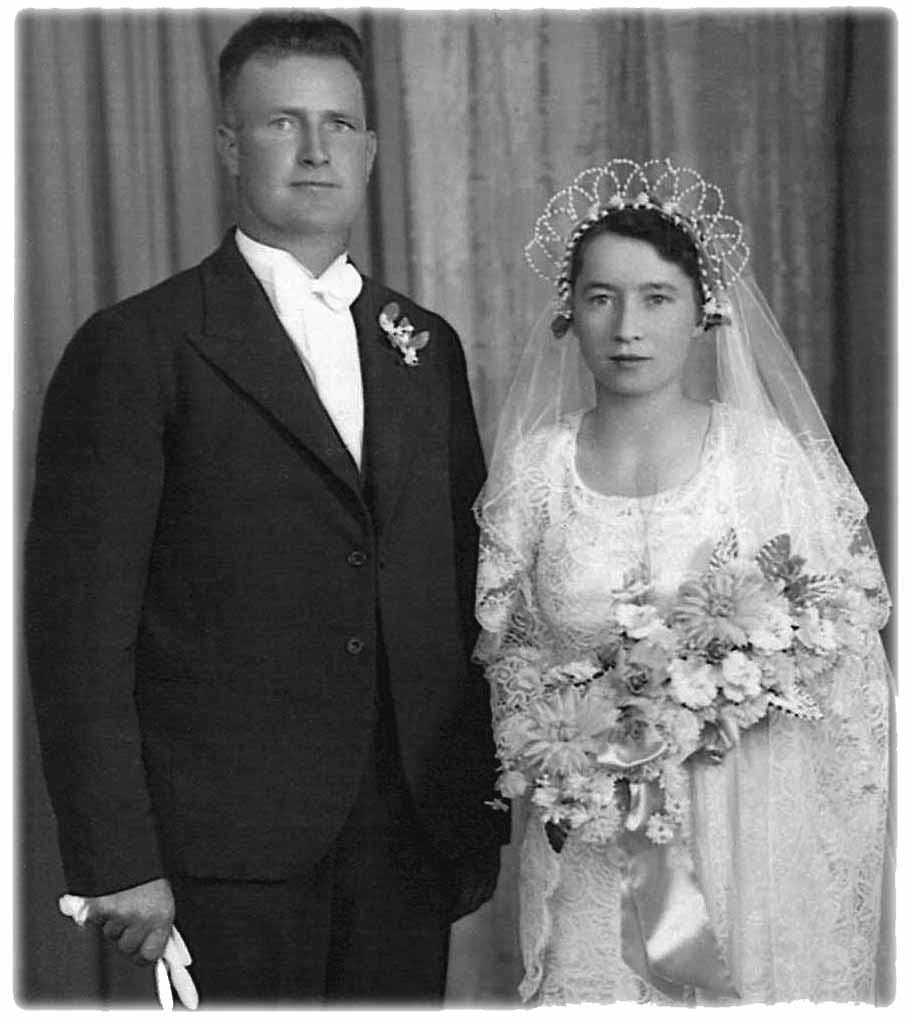
1.5.1.4 Nora born 19-9-1915 died 8-7-1998 married Charles (Pat) Joseph Holland born 27-12-1902 in Latrobe, Tasmania,
farmer, soldier,
hotelier, race-horse trainer died 15-4-1986, at the public hall, Cungena on 24th November, 1936. They are buried at RSL Garden of Remembrance, Happy Valley Cemetery, Pt Lincoln.
Though there were no children, they had many loving nieces and nephews.
Uncle Pat and Auntie Nora worked with Mum and Dad at the Booleroo Centre Hotel. Auntie Nora was known
for her cleaning and cooking skills. I especially loved her home made ice cream. Her recipe for shortcrust pastry was carefully
handed on to me by my mother. When mum visited Auntie Nora once in the 70s in Pt Lincoln and happened to mention
her legendary pastry, Auntie Nora laughed and pulled a packet of ready mix pastry from the cupboard.
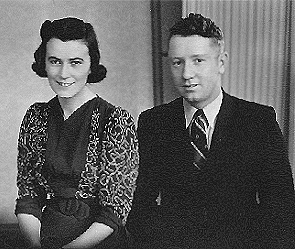
1.5.1.5 Norman Frederick McEvoy, my father,
born 13-7-1918 at Streaky Bay, died 2-3-1980 in Adelaide, interred Rose Garden Centennial Park, married
Diana Thalia Kermode, primary school teacher, born 21-2-20 Adelaide and died 4-1-1997 in Adelaide, interred in Rose Garden Centennial Park,
in the supper room of the Cungena Institute, not the Holy Family Chuch, Cungena on 13-5-1941. She was the daughter of Thomas Kermode
born 29-3-1879 in Adelaide, died 20-6-1948 and Emily May Mobbs born 25-3-1888 died 1927 and stepdaughter of Alma Louise Gigney died 17-3-1966.
Diana and Norman are pictured at left on their wedding day,
the dress made by Auntie Ellie.
Mum was city born and bred, an academic and sporty girl who attended Norwood Primary School where she was dux in Grade 7, and
Adelaide Girls' High School. She played hockey at school and in the interstate team for Adelaide Teachers' College.
She loved movies, claimed to have seen 'Naughty Marietta' 21 times and participated in the operettas performed at Teachers' College including
'The Pirates of Penzance.'
Her brother, Bill (Karman Lancaster Peel Kermode), attended Adelaide Boys' High and was in the rowing eight and they were very close,
their siblings, Corinne (Quat), Ormond (Lut) and Stephanie being older and Thomas Junior, the adopted baby, younger. Diana and Bill
were thoroughly modern, educated and confident children. Sadly, Bill was killed at only 19 as a merchant seaman on the "Iron Knight"
off Newcastle when it was torpedoed and sunk by the Japanese.
Their father, Thomas Kermode of Norton Summit, was a hard man, clever, careful, self educated but bigoted and mean with money.
His childhood was apparently tough. At 13 he was a pony express rider on Kangaroo Island, riding from one end of the island to the other, sleeping on
a pile of bags on the kitchen floor and very often hungry. He later worked for Thomas Playford at Norton Summit on the farm and then
became a farmer himself. He fought in the Boer War and in the First World War and wrote home to his wife, May, tenderly, giving instructions
on the running of the property. He was also a policeman at Murray Bridge, joined: 1-4-1904, resigned 31-12-1907. Sadly, May died of cancer in 1927.
Thomas re-married, a lady who knew him well and made sure she got promises
concerning financial matters before she tied the knot. She had worked as a parlour maid for the Barr-Smiths in Adelaide and knew
about gracious living. Afternoon tea involved keeping the lovely brass kettle boiling on the table, over its spirit burner, a lace tablecloth
and all the accoutrements. She was tall and grey-haired when I knew her and always wore her hair in a sort of bun with marcel type waves at front.
She had summer and winter coats for when she went out, as ladies did then, and always wore amazing shoes, I now realise,
high, square heeled black lace ups. She took good care of her feet because she had six toes and some webbing between them.
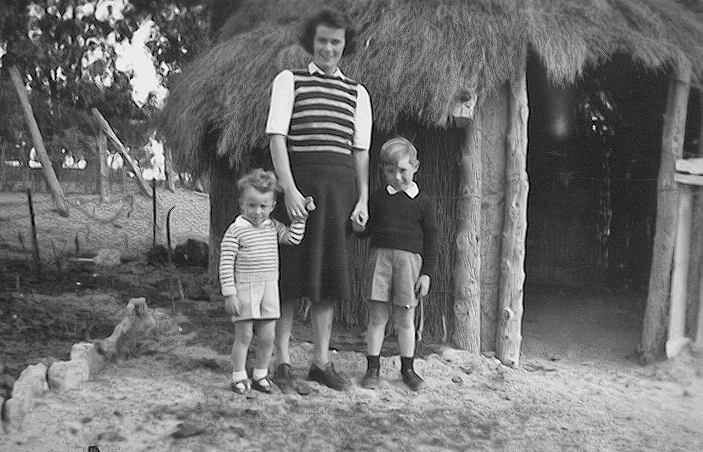 Thomas Senior took an interest in shares and was able to support the family capably even through the depression.
At some stage he bought an old gold mine at Balhannah in the Adelaide Hills. The family spent lovely holidays in the mine building. They had Lady Muriel
Barclay's (the wife of a former governor) old bath, which mum was quite proud of.
An awful thing happened, however, which shocked the whole family. A Mr McCarthy, quite legally, took out a mining lease on their property and began
mining in the middle of their yard. There was nothing they could do about it though my grandfather kept his shotgun ready and loaded
should anyone step over the narrow boundaries of the 'mine' in the midst of his property. There ensued years of bitter feuding and on
one occasion my grandfather is said to have pointed the shotgun at Douglas Mawson, the famous geologist, when Mr McCarthy invited him
onto the property.
Thomas Senior took an interest in shares and was able to support the family capably even through the depression.
At some stage he bought an old gold mine at Balhannah in the Adelaide Hills. The family spent lovely holidays in the mine building. They had Lady Muriel
Barclay's (the wife of a former governor) old bath, which mum was quite proud of.
An awful thing happened, however, which shocked the whole family. A Mr McCarthy, quite legally, took out a mining lease on their property and began
mining in the middle of their yard. There was nothing they could do about it though my grandfather kept his shotgun ready and loaded
should anyone step over the narrow boundaries of the 'mine' in the midst of his property. There ensued years of bitter feuding and on
one occasion my grandfather is said to have pointed the shotgun at Douglas Mawson, the famous geologist, when Mr McCarthy invited him
onto the property.
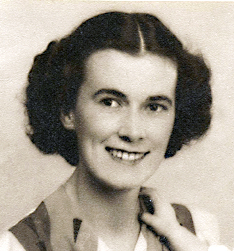 When Mum finished Teachers' College she was 19 years old and was appointed to the single teacher Courela School on the West Coast, a remote and lonely place,
difficult to access, but she was on her own with no fond help from mother or father. She boarded in a tin lean-to at the back of a property where they thought her
city manners very strange. She was well educated in health and insisted on bathing every day, quite unusual in those days!
On a horse, 'a decent little skewbald, very pretty and quite fast' she would ride to her school in the middle of the bush
and teach all 7 grades. The inspector said she was "Confident, earnest, firm, hardworking,
promising, inexperienced" in the first year and "Confident, diligent, pleasant and improved" in the second, though she was chided for not wearing
stockings (in 100 degree+ temperatures) to school, on one occasion. Isolated and alone, it is not surprising that she soon met and wanted to marry my father, which had severe repercussions.
Any woman teacher who married immediately lost her job so that was almost the end of teaching until 1956, when the rules changed. My mother also lost her family because her father
was outraged that my father was a Roman Catholic and refused to have anything to do with them. She was barred from the family home. Fortunately the family later reconciled when my
older brother was born and dad joined the army, but there was always a bitterness which remained. When Mum contracted polio in the great epidemic of about 1952 she had to spend
a year on her back in bed. By now her father had died but she was cared for very well by her stepmother while Dad kept the home fires burning.
When Mum finished Teachers' College she was 19 years old and was appointed to the single teacher Courela School on the West Coast, a remote and lonely place,
difficult to access, but she was on her own with no fond help from mother or father. She boarded in a tin lean-to at the back of a property where they thought her
city manners very strange. She was well educated in health and insisted on bathing every day, quite unusual in those days!
On a horse, 'a decent little skewbald, very pretty and quite fast' she would ride to her school in the middle of the bush
and teach all 7 grades. The inspector said she was "Confident, earnest, firm, hardworking,
promising, inexperienced" in the first year and "Confident, diligent, pleasant and improved" in the second, though she was chided for not wearing
stockings (in 100 degree+ temperatures) to school, on one occasion. Isolated and alone, it is not surprising that she soon met and wanted to marry my father, which had severe repercussions.
Any woman teacher who married immediately lost her job so that was almost the end of teaching until 1956, when the rules changed. My mother also lost her family because her father
was outraged that my father was a Roman Catholic and refused to have anything to do with them. She was barred from the family home. Fortunately the family later reconciled when my
older brother was born and dad joined the army, but there was always a bitterness which remained. When Mum contracted polio in the great epidemic of about 1952 she had to spend
a year on her back in bed. By now her father had died but she was cared for very well by her stepmother while Dad kept the home fires burning.
After the army they moved from Cungena to Yaninee where they ran the shop/post office but had to sell that and move to Adelaide when Mum needed further treatment from the effects of polio.
They had a store on Prospect Rd, Prospect, just down the road from Blackfriars Priory School. We were there during the big earthquake. After that we moved to Booleroo Centre to the pub
with Auntie Nora and Uncle Pat and then to Port Germein pub with Auntie Joan and Auntie Ellie. Dad worked as a share farmer growing peas for some of the time and after the pub,
leased the beach Palais. After a few years there, ever restless, he worked on the Commonwealth Railways as a porter and then joined the railways working on the line and became a ganger,
ending up in Pimba with an amazing bunch of international migrants as his gang.
Mum taught at Port Germein Primary School. By the end of my first year of high school, they decided to move to Adelaide for my schooling. Dad worked very successfully as a real
estate agent for a number of years, including with Con Polites during his early acquisition of property days. They were very exciting times but also incredibly exhausting for Mum
because the phone rang anytime, day or night, and Dad was out most of the weekends. Mum continued teaching in Adelaide and Dad worked as a storeman and later, barman. They were
both very interested in wine before it became fashionable and Dad, though he wasn't much of a drinker, did like to collect wine.
FOR SALE. Good cattle pups. Price, 10/- each. Apply Norman McEvoy, Cungena.
West Coast Sentinel, Saturday 10 April 1926, page 12
I will lease to reliable person the well bred heavy Draught Shire Stallion Mountain Star. Anyone interested apply at once Norman McEvoy, Cungena.
THE Blood Stallion Single Tax will travel the following districts this season if sufficient inducement offers: Cungena, Yantanaby,
Chandada, Karcultaby. Anyone interested apply Norman McEvoy, Cungena.
Will Lease to reliable person Heavy Draught Clydesdale Stallion, Peerless Punch. Anyone interested apply at once. Norman MeEvoy, Cungena.
West Coast Sentinel (Streaky Bay, SA : 1912 - 1954), Friday 22 June 1934, page 8
CLYDESDALE ENTIRE LATEST INTRODUCTION TO WEST COAST.
It is pleasing to note the growing inter est in Clydesdale horses on this section of the West Coast and the endeavours of several owners to improve
the class of stock throughout the, district.
The latest introduction to the West Coast in the Clydesdale class is the splendid three-year-old entire, Alverton Liston Major,
which was landed in Streaky Bay on Friday last from the m.v. Yandra. The horse, which was purchased in Adelaide recently by Mr. Norman McEvoy,
of Mt. Jane, Cungena, stands 16 hands, three inches in height. He is par ticularly large framed, liberally endowed with bone, muscle and body,
and several local authorities who inspected him on arrival, consider he should produce a line of stock perfectly suited to local conditions.
He is strikingly marked, being brown with four white feet and prominent white blaze down the face.
Alverton was bred in the famous Mc Dermot stud, near Adelaide, and it was here that he was inspected by Golds borough. Mort & Co.,
who recommended him as an ideal selection for West Coast conditions. He was sired by Liston Duke (imported) and is from Alverton Una.
His grand-sire, Dunure Footprint, gained the highest awards in Scotland, where Baron of Bucklyvie, his great-grandsire, was sold for £9,500.
Alverton Una won numerous awards in Scotland before her importation to Australia, and her successes in this country include the reserve
championship in the Melbourne Royal Show, on several occasions.
Mr. McEvoy who is to be congratulated on his enterprise, states that the entire will stand at Mt. Jane next season.
West Coast Sentinel (Streaky Bay, SA : 1912 - 1954), Friday 17 November 1939, page 1
CUNGENA SOCIAL WELCOME HOME SOCIAL
Norman McEvoy was the guest or honour at a welcome home social held in Cungena Hall on Saturday, October 14. Mr. A. Mclnnes presided over a
big gathering from Cungena and surrounding districts. Other speakers included Messrs. Patterson (Cungena), Hollamby (returned soldiers) and
A. Johnson (Courella). The guest who has just been discharged from the A.I.F. received a monetary gift from residents at the hands of Mr.
Mclnnes and expressed thanks to all. Musicians for the evening were Mrs. A. Voumard, Misses E. Karutz, J. Miller, Nellie Dunn, L. Elefsen
and Mr. F. McEvoy. Messrs. F. McEvoy and Bill Gill acted as M.C's.
West Coast Sentinel, Thursday 26 October 1944, page 3
NORMAN McEVOY wishes to THANK residents of Cungena and surrounding districts for welcome home social and presentation given him at
Cungena. Also for letters and parcels received while serving in A.I.F.
West Coast Sentinel, Thursday 2 November 1944, page 4
Diana and Norman had 3 children:
1.5.1.5.1 Christopher McEvoy born 1942 died 10-9-2023
1.5.1.5.2 Jonathan McEvoy born 28-12-1945 died 26-5-1975
1.5.1.5.3 Louise McEvoy born 1949
Norman McEvoy attended Cungena Primary school with his brothers and sisters. He would have been in the same class as his cousin, Pat McEvoy, who says in his recollections of the times:
I started school when I was five. The teacher was Rita Hogan. ...Then came Roy Parks. He was a bit strict. He used to lay us across his knee and had a leather strap to belt the bum.
Then came Merv Hynaman. He was only about 20 when he came there and had about 40 kids to teach all by himself. (Interestingly, Roy Parkes was later School Principal at Port Germein,
where Norman also later lived. Roy Parkes wrote an excellent history of the town in 1936.)
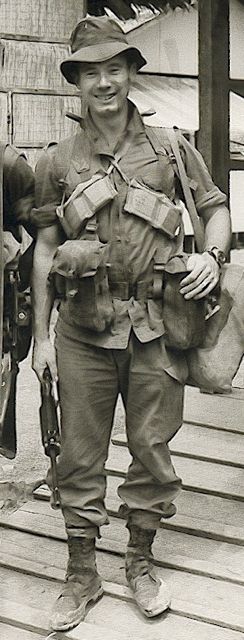
1.5.1.5.1 Christopher McEvoy born 1942, loved brother, died 10-9-2023 at Flinders Medical Centre, now with
his parents in the rose garden, Centennial Park, but also has a memorial on veterans SA Garden of Remembrance, Wall 34 Row M.
A career soldier, he served in Borneo, Malaya and with the AATTV, Vietnam, divorced, one stepson:
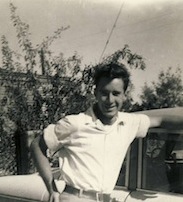 1.5.1.5.2 Jonathan McEvoy, loved brother, born 28-12-45 Streaky Bay, soldier, who served in Vietnam,
died 26-5-75 as a result of contamination, plaque on the Army Wall of Memory at Centennial Park Cemetery, Adelaide, married Carol Ann Anderson
daughter of Bob and Heather Anderson, born 1947 Brisbane, on 8-1-1966 in Brisbane, 2 children:
1.5.1.5.2 Jonathan McEvoy, loved brother, born 28-12-45 Streaky Bay, soldier, who served in Vietnam,
died 26-5-75 as a result of contamination, plaque on the Army Wall of Memory at Centennial Park Cemetery, Adelaide, married Carol Ann Anderson
daughter of Bob and Heather Anderson, born 1947 Brisbane, on 8-1-1966 in Brisbane, 2 children:
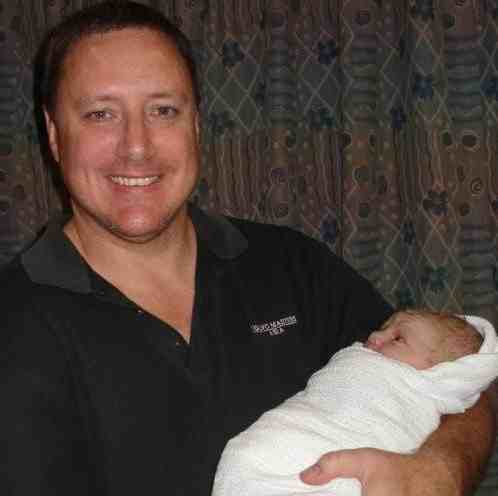
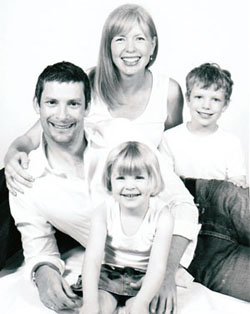
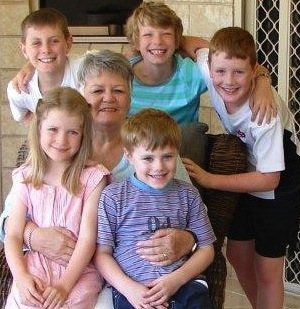
1.5.1.5.2.1 Renee McEvoy born 1967 Brisbane, married John Tunney in 1999, 2 children:
1.5.1.5.2.2 David McEvoy, cameraman, born 1971, Murray Bridge, married Nadia Mainey, nurse, in Brisbane in 2002,
3 children:1.5.1.5.2.2.1 Alexander McEvoy born 2002 Brisbane
1.5.1.5.2.2.2 Jeremy McEvoy born 2004 at home, but not on purpose, in Brisbane.
1.5.1.5.2.2.3 Jack McEvoy born 2007
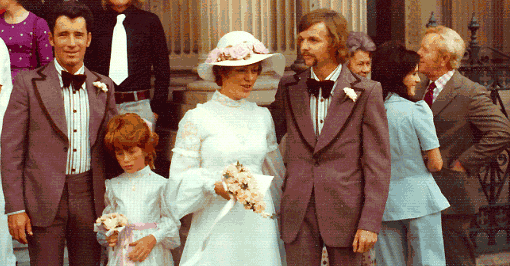
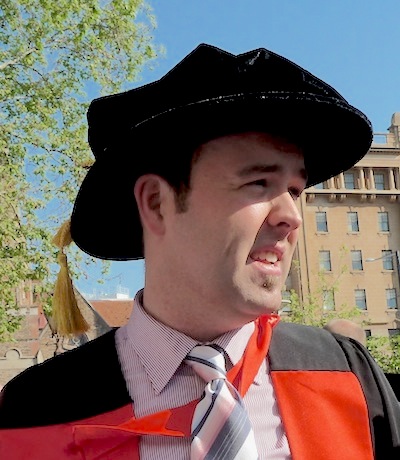
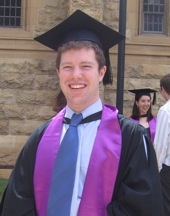 1.5.1.5.3 Louise McEvoy, secondary teacher,
born 1949 Streaky Bay Hospital married
Søren Peter Nordestgaard, engineering surveyor, survey draftsman,
system manager, born 1949 Fole,
Denmark, emigrated on the Australis arrived Fremantle and disembarked Sydney in March 1971, in
1974 at Adelaide Registry Office, 2 sons:
1.5.1.5.3 Louise McEvoy, secondary teacher,
born 1949 Streaky Bay Hospital married
Søren Peter Nordestgaard, engineering surveyor, survey draftsman,
system manager, born 1949 Fole,
Denmark, emigrated on the Australis arrived Fremantle and disembarked Sydney in March 1971, in
1974 at Adelaide Registry Office, 2 sons:
1.5.1.6. Mona Joan McEvoy born 19-5-1921 died 2-7-1976 married John Sutherland
(Jack) Patterson born 19-2-1917 died 9-3-1981, brother to Archie, at the Church of St Mary of the Angels, Port Lincoln on 1-8-1941.
PATTERSON, Joan Ρ On July 2, at Port Lincoln Hospital, Joan, dearly loved daughter of the late Monnie and Fred McEvoy of Cungena and loved sister
of Mollie and Norm. In God's tender care.
Port Lincoln Times, Thursday 8 July 1976, page 34
4 children:
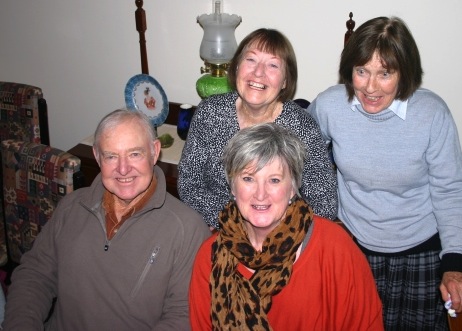
1.5.1.6.1 Terrence John Patterson born 28-6-1942
1.5.1.6.2 Helene Patterson born 2-7-1943
1.5.1.6.3 Jillian Mary Patterson born 16-11-1945
1.5.1.6.4 Jennifer Patterson born 2-4-1951
1.5.1.6.1 Terry Patterson born Port Pirie Hospital, farmer, married Jan Leckie on 31-7-1966 at Tailem Bend (It was a great wedding.
I was 16 and had a new, cream poodle-knit, chanel-look suit with a sleeveless navy underblouse
and a pair of very high, incredibly pointy navy blue shoes to wear, my first really adult outfit. It was a country reception with dancing and I had a wonderful time.) 3 children:
1.5.1.6.1.1 Andrew Patterson and Diane Andrasic, 3 children:
1.5.1.6.1.2 Simon Patterson married Tanya Edith Van Weenan, sister of Leon married to Tracey Moroney, 3 children:
1.5.1.6.1.3 Colette Patterson and Anthony Barnes, 2 children:
1.5.1.6.2 Helene Veronica Patterson, primary teacher, married John Kilmartin, family historian and source of much
of the information on these pages, born 20-1-1937 died 26-10-2009, on 14-6-1966 in Adelaide, 3 children:
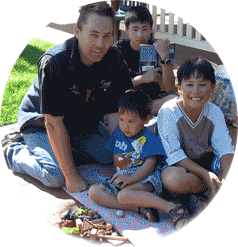 1.5.1.6.2.1 David Kilmartin born 1967 married Johanna Low, 3 children:
1.5.1.6.2.2 Michael Kilmartin born 1968 married Heather Parsons in 2010, 2 children:
1.5.1.6.2.3 Karen Kilmartin born 1970 married Kevin Stephens, div. 2 children:
1.5.1.6.2.1 David Kilmartin born 1967 married Johanna Low, 3 children:
1.5.1.6.2.2 Michael Kilmartin born 1968 married Heather Parsons in 2010, 2 children:
1.5.1.6.2.3 Karen Kilmartin born 1970 married Kevin Stephens, div. 2 children:
1.5.1.6.3 Jillian Mary Patterson married Ludwig Kraayenbrink, 2 children:
1.5.1.6.4 Jennifer Joan Patterson married Dennis Valente on 8-7-1972 at Chandada, 3 children:
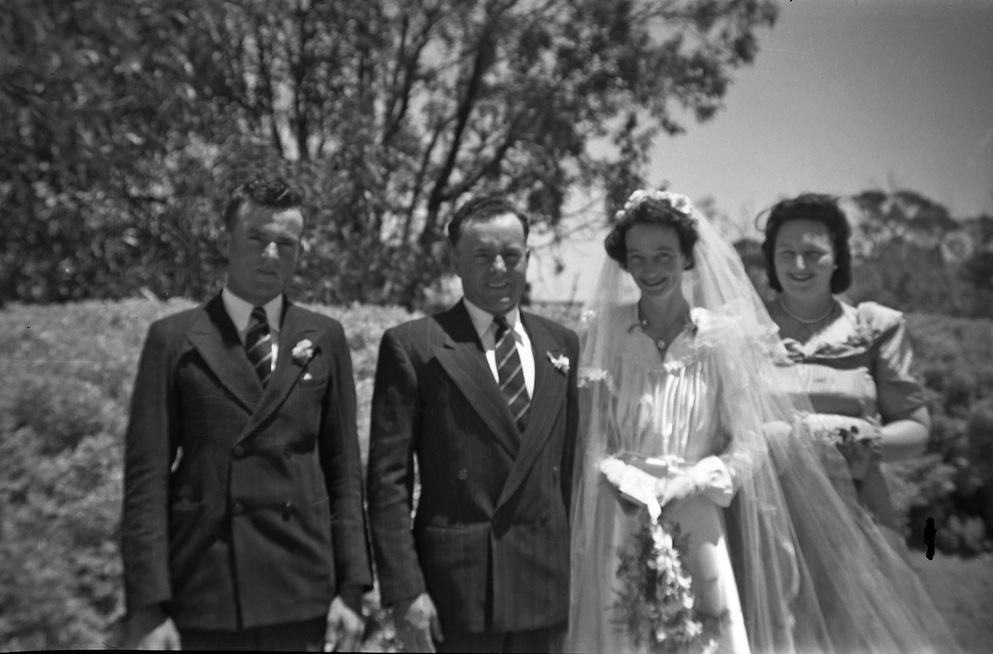
1.5.1.7 Freddy McEvoy born 11-10-1923 Streaky Bay, farmer, creator of wonderful
machines out of farm equipment, and poet, died 26-12-1990, Adelaide Hospital, buried Centennial Park, married Ellen (Nell) Therese
Quinn, daughter of Bartholomew Phillip Quinn and Honorah Theresa Gertrude Fitzgerald (see The Fitzgeralds, Irish Pioneers of South Australia) born 8-7-1926
Streaky Bay, on 30-11-1950 at Cungena. Auntie Nell died suddenly on 27-11-2011-a lovely, gentle lady at rest: 7 children:
1.5.1.7.1 Kevin McEvoy born 31-12-1951
1.5.1.7.2 Terence McEvoy born 12-6-1953 died 30-3-2008.
1.5.1.7.3 Heather McEvoy born 1-10-1954
1.5.1.7.4 Elizabeth (Beth) McEvoy born 4-5-1958
1.5.1.7.5 Clare McEvoy born 23-9-1960
1.5.1.7.6 Shane McEvoy born 30-11-1961
1.5.1.7.7 Pamela McEvoy 24-3-1964
Peter and I dropped into their Cungena farm while on holiday, shortly after we were married and living in Whyalla. We were met by a couple of delightful children.
I asked their names and one of them rattled out, "Shane Anthony McEvoy." In the yard around the house were the most wonderful machines
made and powered using farm equipment. An old metal trough was called the bone shaker. The Hills hoist was a hurdy gurdy. We had lunch
with them and Auntie Nell, in her lovely calm style, served up peaches, ice cream and red jelly for dessert-a perfect union of flavours.
1.5.1.7.1 Kevin McEvoy born 31-12-1951 Streaky Bay married Margaret Kain born 9-4-1954, at Church of the Holy Cross, Goodwood on 29-3-1980, 2 children:
1.5.1.7.1.1 Anita McEvoy born 1982 married Mark Kershaw in 2010, 1 child:
1.5.1.7.1.2 Dennis
McEvoy born 1985 married Jennifer Durst in 2014, 2 daughters:
1.5.1.7.2 Terry McEvoy, born 12-6-1953 Streaky Bay Hospital, married Shantha Anthony born 19-4-1955, Bangalore, India, in 2003 at Church of the Holy Cross, Goodwood.
Terry died suddenly on 30th March, 2008. His funeral service was conducted at Church of the Holy Cross, Goodwood, on Tuesday, April 8th and he was afterwards interred in the Catholic Cemetery at Centennial Park.
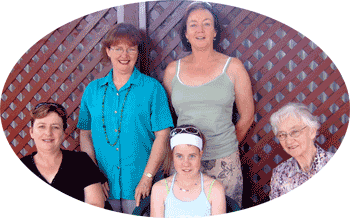 1.5.1.7.3 Heather McEvoy born 1-10-1954 at Streaky Bay Hospital
married Anthony Carey, born 1954 in
1975 at St Martin's Church, Greenacres, 2 children:
1.5.1.7.3 Heather McEvoy born 1-10-1954 at Streaky Bay Hospital
married Anthony Carey, born 1954 in
1975 at St Martin's Church, Greenacres, 2 children:
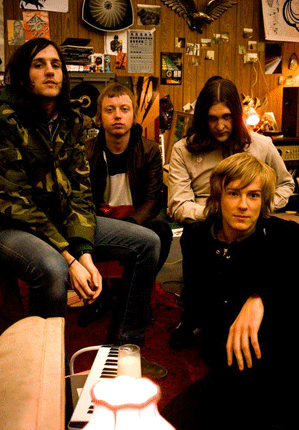
Photo: Standing:Heather, Beth. Seated:Pam, Philippa, Nell
1.5.1.7.4 Beth McEvoy born 4-5-1958 Streaky Bay married Mark Langford born 1960,
at Church of Our Lady of Dolours, Kingswood in 1981, 2 children:
1.5.1.7.4.1 Simon Langford born 1990 married Courtney Uren on 24-10-2020, 1 child:
1.5.1.7.4.2 Philippa Langford born 1992
1.5.1.7.5 Clare McEvoy born 23-9-1960 at Ceduna Hospital married Peter Graham Bilske born 25-6-1960, at Holy Cross Church, Goodwood, div, 2 children:
1.5.1.7.6 Shane McEvoy born 30-11-1961 Steaky Bay Hospital married Susan Kain born 17-7-1960, 2 children:
1.5.1.7.7 Pamela McEvoy born 24-3-1964 Streaky Bay, primary teacher, married Shane Davidson in 1990 at Cabra Chapel, 2 children:
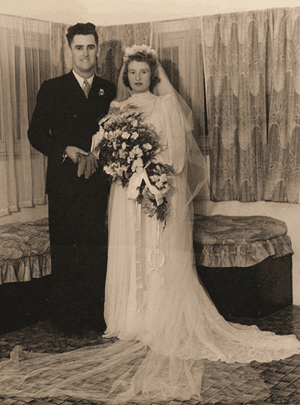
1.5.1.8. Carmel Therese McEvoy born 10-3-1926 died 4-4-1995
married William (Bill) Max Gill b. 26-1-1925 died 8-10-2017 (parents George Gill and Olga Fedora Bockelberg)
a farmer from Poochera, in 1949 at Cungena Catholic Church. Carmel and Bill are interred at Poochera Cemetery. 4 children:
1.5.1.8.1 Sandra Gill
1.5.1.8.2 Jeremy Gill
1.5.1.8.3 Michele Gill
1.5.1.8.4 Janine Gill
1.5.1.8.1 Sandra Kaye Gill born 6-7-1950 married Kevin Horgan born 1953, 4 children:
1.5.1.8.1.1 Tannille Shae Horgan born 1980 in 2003 married Chad Fleming born 1980, 3 children:
1.5.1.8.1.2 Calise Naome Horgan born 1982 married Milton Holmes in 2008, 2 children:
1.5.1.8.1.3 Shannon Blaise Horgan born 1984 married Stacey Ann Lang in 2010, 1 daughter:
1.5.1.8.1.4 Riahn Shonele Horgan born 1986.
1.5.1.8.2 Jeremy Gill born 1953 married Julie Marie Horgan born 1960, in 1980, 3 children:
1.5.1.8.3 Michele Therese Gill born 22-03-1954, died 25-12-2020 in Burra, married Shane Cooper (deceased), 4 children:
1.5.1.8.4 Janine Gill born 20-3-1959 married Ian Gosling, 5 children:
1.5.1.8.4.1 Renae Gosling born 7-12-1979, died 7-7-1983
1.5.1.8.4.2 Tara Nicole Gosling born 1981 married Nigel Brace in 2003, 3 children:
1.5.1.8.4.3 Shard Mathew Gosling born 1982 married Rebecca Brave in 2017, 2 children;
1.5.1.8.4.4 Orrin Gosling born 1987 married Tijana Tepsic in 2013, 3 children
1.5.1.8.4.5 Tahlia Gosling born 1989 and Simon Darby, 1 daughter:
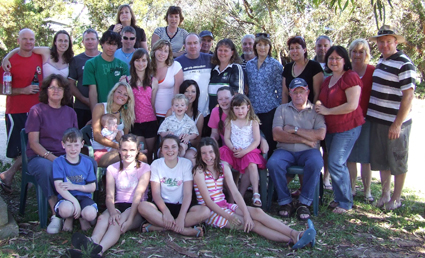
1.5.1.9 Martin Michael McEvoy born 21-8-1928 died 27-10-2009, farmer, married
1.Winifred Ellen
O'Loughlin.
On his return flight Mr. John Doudy flew to Streaky Bay with a supply of antivenum serum for the treatment of Mr.
Martin McEvoy of Courela, who was bitten by a red-back spider the previous night.
Port Lincoln Times, Thursday 1 June 1961, page 1
9 children:
1.5.1.9.1 Timothy Damien McEvoy born 21-4-1957
1.5.1.9.2 Catherine Ann McEvoy born 8-9-1958
1.5.1.9.3 Mary Louise McEvoy born 25-8-1959
1.5.1.9.4 David Michael McEvoy born 23-5-1961
1.5.1.9.5 John Anthony McEvoy born 23-9-1962
1.5.1.9.6 Paul Andrew McEvoy born 29-1-1964
1.5.1.9.7 Rory Phillip McEvoy born 28-4-1965
1.5.1.9.8 Loretta Margaret McEvoy born 19-10-1966, died 13-2-2020
1.5.1.9.9 Brett Joseph McEvoy born 2-5-1968
Winnie died in a car crash on 15-11-1968. Martin married 2.Lynnette Rae Kennett born 5-7-1942, 1 child:
1.5.1.9.10 Gregory Dean McEvoy born 12-8-1971
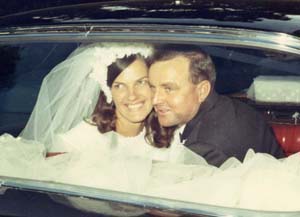
1.5.1.9.1 Tim McEvoy married Ann Kelsh, 2 children:
1.5.1.9.2 Catherine Ann McEvoy
1.5.1.9.3 Mary McEvoy married Raymond Chandler born 1958 died suddenly on 26-08-2008 in Port Lincoln, 3 children:
1.5.1.9.4 David McEvoy married Kiely Anne Carey, 3 children:
1.5.1.9.5 John McEvoy married Dianne Michelle Sheehy born 1962 in 1991, 2 children:
1.5.1.9.6 Paul McEvoy married Anne Dawn Schlink born 1964, 2 children:
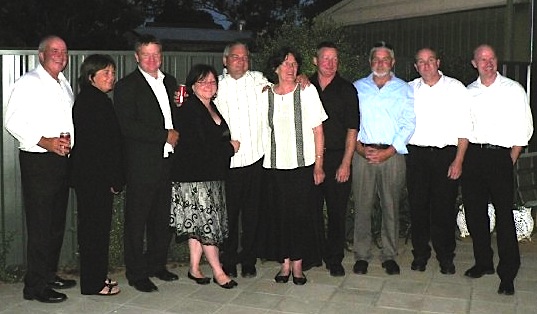 1.5.1.9.7 Rory McEvoy married Sharon Jane Kennedy on 3-3-1990, 2 children:
1.5.1.9.7 Rory McEvoy married Sharon Jane Kennedy on 3-3-1990, 2 children:
1.5.1.9.9 Brett Joseph McEvoy married Wendy Renee Cook in 2001, 3 children:
1.5.1.9.9.1 Caitlyn Ann McEvoy born 2002
1.5.1.9.9.2 Mitchell Martin McEvoy born 2004
1.5.1.9.9.3 Cody Roy McEvoy born 2007
1.5.1.9.10 Gregory Dean McEvoy married Amanda Gissop born 1977 in 2005, 3 children:
1.5.1.9.10.1 Flynn McEvoy born 2008
1.5.1.9.10.2 Freya McEvoy born 2011
1.5.1.9.10.3 Maeve McEvoy born 2012
Greg, a WO1 in the army, received the OAM in the 2011 Queen's Honour list for service in the field of Materiel Maintenance.
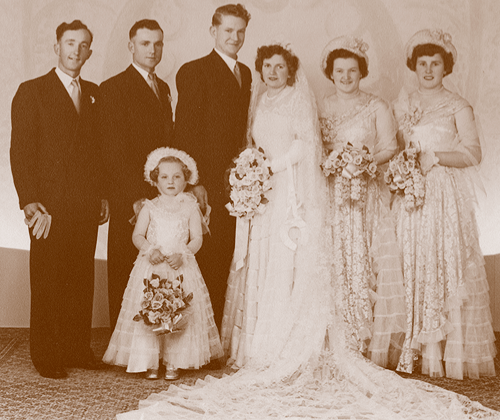
1.5.1.10 Laurence Norton McEvoy born:13-9-1930 joined the
police force 2-4-1951, retired Chief Superintendent 31-3-1989, died 18-5-2002,
buried Centennial Park married Fay Higgins, born 3-7-1932 died 15-10-2020 aged 88 years,
memorial service at Holy Cross Church, Goodwod, on 28-8-1952 at Streaky Bay, 4 children:
1.5.1.10.1 Wayne Laurence McEvoy born 1-10-1953 , died 13-4-1989
1.5.1.10.2 Debra Catherine McEvoy born 18-10-1955
1.5.1.10.3 Leith John McEvoy born 26-7-1961
1.5.1.10.4 Craig Andrew McEvoy born 21-8-1963
1.5.1.10.1 Wayne Laurence McEvoy born 1-10-1953, died 13-4-1989 aged 35 years,
married Gail Eleanor Fowler, 2 children:
1.5.1.10.2 Debbie McEvoy married Peter Daw, 2 children:
1.5.1.10.3 Leith McEvoy, married Noreena Buffon, 3 children:
OTHER PAGES:
 Family Index
Family Index
 Immigrants Dennis and Jane
Immigrants Dennis and Jane
 1.1 Catherine McEvoy Family
1.1 Catherine McEvoy Family
 1.2 John McEvoy Family
1.2 John McEvoy Family
 1.3 William McEvoy Family
1.3 William McEvoy Family
 1.4 Dennis McEvoy Family
1.4 Dennis McEvoy Family
 1.5 Joseph McEvoy Family
1.5 Joseph McEvoy Family
 1.6 Edward, 1.7 Robert, 1.8 Francis, 1.9 Daniel McEvoy Families
1.6 Edward, 1.7 Robert, 1.8 Francis, 1.9 Daniel McEvoy Families
 Home Page
Home Page
Top of page
Page uploaded May, 2004, re-done 4-1-2010, updated 24-6-2024
Please email me re changes.

Frederick and Monnie (Anne Edith) with their first 7 children, at Mt Jane.



Express and Telegraph (Adelaide), Wednesday 22 December 1880, page 2
I remember Grandpa McEvoy as always looking very smart in a brown striped suit and waistcoat with a fob watch. He was balding, wore round glasses, was slim, of medium height and smoked a pipe. He wore a smart felt hat, tilted, as did all the men in those days, and had a rather long straight moustache. He loved euchre and would stay with my Aunties Joan and Ellie, (also euchre lovers) at Port Germein and walk over to see us at our beachfront house. Mum said that he was terrible (not the words she used) when it came to food and always complained about something, no matter what he was served, and she was a very good cook! We kids all loved his visits, especially because when he left he would always hand us shillings and florins.
West Coast Sentinel, Friday 22 November 1912, page 2
Southern Cross, Friday 9 April 1954, page 14
Click on the name to go straight to that family or simply scroll down the page.
1.5.1.2 Ella Patricia (Ellie) McEvoy born Sunnyside, Warrow, 20-4-1911 to 16-1-1961
1.5.1.3 Mollie Heather McEvoy born Calca, 29-7-1913 to 23-9-1997
1.5.1.4 Nora Clare McEvoy born Sceales Bay, 19-9-1915 to 8-7-1998
1.5.1.5 Norman Frederick McEvoy born Mt Jane, Cungena, 13-7-1918 to 2-3-1980
1.5.1.6 Monica Joan (Joan) McEvoy born Streaky Bay, 19-5-1921 to 2-7-1976
1.5.1.7 Frederick Joseph McEvoy born Streaky Bay, 11-10-1923 to 26-12-1990
1.5.1.8 Carmel Therese McEvoy born Streaky Bay, 10-3-1926 to 4-4-1995
1.5.1.9 Martin Michael McEvoy born Streaky Bay, 21-8-1928 to 27-10-2009
1.5.1.10 Laurence Norton McEvoy 13-9-1930 to 18-5-2002
 (From the Manning Index of SA History)The 'Cungena Run' was established by Anton Schlink circa 1864 (lease no. 1689).
He had held the land since December 1861 (lease no. 976). An Aboriginal word for 'rock holes'.
(From the Manning Index of SA History)The 'Cungena Run' was established by Anton Schlink circa 1864 (lease no. 1689).
He had held the land since December 1861 (lease no. 976). An Aboriginal word for 'rock holes'.


Photos: 1954, 1974
PATTERSON - McEVOY WEDDING
At Cungena, on May 18, Hugh Archibald, eldest son of Mr. and Mrs. H. B. Patterson, of Cungena (late of Murray Bridge),
was married to Dorothy Hazel, eldest daughter of Mr. and Mrs. F. J. McEvoy, of Cungena. The Rev. Father Toal officiated.
The bride, who was given away by her father, was gowned in deep-cream crepe satin, with long tight-fitting sleeves.
The uneven corsage was trimmed with tiny buds of orange blossom and silver leaves, while the skirt
fell in soft flares to the ankles. The veil, which was lent by Mrs. Davies, of Port Lincoln, was arranged
to form the train, fitting the head cap fashion, with a coronet of orange blossom. She carried a sheaf of
deep cream chrysanthemums and daisies, with streamers. The bridesmaids were Miss Ella McEvoy (sister of the bride)
and Miss Mary Quinn. Mr. V. C. Sigmont. of Adelaide, was best man, and Mr. F. Barret, of Yantanaby, groomsman.
The bride's travelling frock was brown satln, with hat and shoes to match.
Chronicle, Thursday 18 June 1931, page 60
From the ABC website, Posted Wed Nov 14, 2007 8:38am
Archie Patterson is a former farmer and billiard hall owner who says he has memories stretching back to 1911, when he collected eggs as a child.
Mr Patterson attributes his longevity to eating fig jam.
"It was the first jam made, and it will be the last one as far as I am concerned," he said.
"I have that for breakfast every morning; fig jam and cream, and plenty of love."
Mum always said that Auntie Dorothy could go to the cupboard and get a couple of tins and make a delicious meal for any number of people out of almost nothing. She was a genius in the kitchen.
Dorothy and Archie had 7 children:
-
1.5.1.1.1 Hazel Lorraine Patterson
1.5.1.1.2 Pamela Anne Patterson
1.5.1.1.3 Patricia Evelina Patterson
1.5.1.1.4 (Hugh) Ian Patterson
1.5.1.1.5 Gabrielle (Gay) Margaret Patterson
1.5.1.1.6 Gregory Michael Patterson
1.5.1.1.7 Mary Catherine Patterson
1.5.1.1.1 Hazel Patterson born 15-2-1932 married Darrell Francis Gillings d. 31-10-2018, 6 children:
1.5.1.1.3 Patricia Everlina Patterson born 10-8-1936 died 29-4-1999, interred North Shields Garden
Cemetery, married Ray Stanley Jones, 3 children:
1.5.1.1.4 Hugh Ian Patterson born 7-6-1938 died 12-9-2010 in Port Lincoln, RIP dear cousin, married Margaret Brown, 6 children:
1.5.1.1.5 Gabrielle Patterson married Robert Francis Heath who died 7-2-1994 aged 60 years, 4 children:
1.5.1.1.6 Greg Michael Patterson born 29-1-1948 died 2-6-2022 Pt Lincoln,
married Karen Vicki Haskett d. 16-1-2017 aged 67 yrs, 2 children:
1.5.1.1.7 Mary Patterson born 2-8-1949, married Robin Mattner born 29-1-1947, 3 children:
1.5.1.1.1.1 Francis Lloyd Gillings married Gail Denise Jenner, 3 children:
1.5.1.1.1.2 Mark Gerard Gillings born 12-10-1956
1.5.1.1.1.3 Jacinta Marie Gillings married Craig Lynch, 2 children:
1.5.1.1.1.4 Ramon Laurence Gillings and Donna
1.5.1.1.1.5 Damian Patterson Gillings
1.5.1.1.1.6 Luke John Gillings and Liz

1.5.1.1.4.1 Karen Lee Patterson married Stephen Martin
1.5.1.1.4.2 Craig Patterson (deceased)
1.5.1.1.4.3 Patricia (Trish/Tricia) Patterson married Brenton Cole, 4 children:
1.5.1.1.4.4 Cherine Patterson married Michael Pearson
1.5.1.1.4.5 Vanessa Patterson married Michael Blacker, 3 children:
1.5.1.1.4.6 Matthew Patterson married
Ros Sidler, 3 children:
Since Matthew and Ros are related via one set of great, great grandparents, the family have 2 entries in the family index,
one for the mother's number and one for the father's.
Cungena, June 3, 1922.
Dear Wattle Blossom,ΡI enjoyed reading the page for the children, and I would like to join your Club if you will accept me.
I was l1 years old on the 20th of April. We drive five miles to school. I have a little roan pony. I am enclosing 6d. I liked reading
about the melon cutting. Our school is in close to the railway siding. Daddy has not finished ploughing yet. We had Empire Day last Friday.
Your loving friend, ELLA McEvoy
Southern Cross (Adelaide, SA : 1889 - 1954), Friday 30 June 1922, page 18
Auntie Molly tells of family life at Cungena for Fred and Monnie and the family in this article which appeared in The Port Lincoln Times on page 6 on Wed, Jan 20, 1982 as "Going Back..with Daphne".
Mount Jane first farm at Cungena
It is difficult to realise that less than 75 years ago, most of Eyre
Peninsula was acres upon acres of scrub as far as the eye could see.
| It took a special kind of person to go into that scrub with a vision of changing it to productive farming land.
Joseph and Eliza McEvoy trekked from Hammond to the West Coast with their eight children, four boys and four girls, and made their home in the Hundred of Mortlock in the late 1890s. [NB It was actually 1903 when the family came from Hammond.] Fred, who was born at Wirrabara, was the oldest of the children and Charlie was the youngest. Seventeen year old Fred went to work for Mr Jim Cuddeford at Warrow for three shillings per week and Rose, 15, went to work for another family for two shillings a week. Both had been working for some time before the family came to the peninsula and most of their money was given to their parents to "keep the wolf from the door." Fred could scarcely believe his good fortune when Mr Cuddeford increased his wages to four shillings a week plus a small share of the crop. Throughout his lifetime Fred spoke with fond memory of Jim Cuddeford who had treated him more as a brother than as a workman. Fred fell in love with a pretty girl, Mona (Monnie) Puckridge, second daughter of Hanna and Horace Puckridge of Ulina Station who were against the match because they were Church of England and Fred was Roman Catholic. Jim was a great help as were Monnie's brothers Harry and Reg. Rose, too, did her share for her big brother and in 1907, Fred and Monnie were married at Ulina Station. Fred took his bride to a little cottage made available to them by Jim Cuddeford opposite the Warrow Hotel. Their first child, a daughter, was born at a nursing home, "The Castle," in Port Lincoln. A second daughter was born but this time the event took place in their cottage with Monnie's mother-in-law, Eliza McEvoy, as midwife. Fred and Monnie decided to move to a sharefarming position with a Mr Roberts of Sceales Bay, more or less following Fred's parents who had previously moved to the area. Two more daughters were born to the couple, the first being Mary Heather who was to be known as Mollie. About this time Fred got itchy feet. A war was being fought, the railway was being put through from Port Lincoln to Thevenard, and land was being opened up along the railway line. Monnie had been a good scholar and had also been tutored by her aunt, Maud Morgan, after her formal schooling had ended. So it was Monnie who wrote to the Government asking for details and maps of this land that Fred talked of. Rose came to stay while Fred set off to "select" a property, guided by the information that had been sent. He had a gun, 200 gallons of water, sleeping gear, food, a saddle hack, a mare in a spring cart and an "expect me when you see me" goodbye. He was strong and healthy, a good bushman, and had his well | trained dog with him.
Fred had no trouble in finding the highest point marked on one map as a "trig" point in a pine forest, in this wild land.
This was called Mount Jane, which name he also gave to his farm, and when he arrived he made camp and slept in the cart by his water tank. Morning came and with clear blue eyes, he viewed his surroundings which were miles upon miles of trees, with the Gawler Ranges making a backdrop to the northeast. After breakfast, he hobbled his cart mare, put a saddle on his hack and set off to explore. Twice he rode around his block, Mount Jane. There were trees of every description, from oak to mallee and wild peach. It was the tenth day when Fred arrived back at Sceales Bay to tell his story to Monnie and Rose. "The railway line runs along the eastern boundary. The block is not big but I am sure I could get even more land. There are wild turkeys, pigeons, all the birds imaginable, wild flowers of every kind, and several acres of plains." So early one morning a "circus" left Sceales Bay bound for Mount Jane, Cungena. There were men on horses, bells ringing on others, loaded wagons, two cows, hens with chickens in small coops, two pigs, dogs barking and whips cracking. There were Monnie and the four children, the youngest a baby in a fish basket which had no doubt been filled many times with whiting from the clear waters of Sceales Bay. Rose, with the reins in her small strong hands, drove two horses in a hooded buggy, and led the procession on their way. "I well remember the horses with their big eyes looking towards me, their noses in big tubs of water, slobbering, blowing, biting, too many horses and not enough tubs," Mollie said. "We had reached our destination." A big government shed stood in a small clearing and birds and horses and men all seemed to be on the move. A house of split pine and clay was built under the shed which was open on all sides and had a tank at each corner. The house was beautifully cool in summer. "Work started on this land as soon as we arrived, it seemed to me. Food in plenty seemed to come as magic on our plates." There was great excitement when Grannie and Grandpa McEvoy with Charlie came to live next door, and it seemed no time before Edwin McEvoy and his wife Alice returned from Western Australia. Some of Fred's other sisters and brothers married and sons were born. Grannie McEvoy became ill and the family gathered at Kildalton, the grandparents' home. "Mother and Aunt Alice talked quietly together as they often did. I don't remember much about the funeral, just that there were many tears," Mollie said. WORKED TOGETHER
| The men owed a debt to their wives who stood by them and worked with them, their beautiful hair bleaching in the hot summer sun, their fair
complexions hardening and drying," Mollie said.
It was suggested that a housekeeper be employed and the first one, Eileen Allan, married Len Tomney. Eileen's sister Kathleen came to take her place and after a time she and Charlie married. Mollie's two older sisters were sent to Port Lincoln for schooling, and that was a sad day for parents and children. However, crops of wheat grew and yielded well and everyone, mothers and children alike, sewed the tough bags with strong twine. The arrival of groceries was an exciting time. Great tea chests packed with a year's supply of everything were landed at Cungena railway siding, boxes and boxes each containing two four gallon tins of kerosene for lamps, and several bags of flour and sugar, all branded with the grocer's name, SO Bielby, Adelaide. Jam came in 5 pound tins and golden syrup (poorer people ate molasses) in four gallon tins. The war ended and young men returned-Tom Lee, Charlie Cotton, Wally Thorpe, Ted Burke, Frank Voumard, and Ed Barratt whose brother Jack was one of the boys who did not come home. "I can still picture their big hats and uniforms with the rising sun on them," Mollie said. "It was these young men, our mother told us, that saved our country and let us stay at Mount Jane without fear of anything in this world. Wonderful stories we listened to, and these sessions ended with a little prayer of thanks for them all," Mollie said. The government put up sheds similar to the one on Mount Jane, for the returned soldiers. Underneath the sheds were built houses of pug and pine, sometimes with straw mixed in with the pug, and big stone chimneys. An epidemic of pneumonic influenza went through Australia. The only person to die in the district was the doctor at Streaky Bay. Monnie made brown paper singlets covered with lard which the children wore for protection. Mollie said, "Mother got the flu but recovered. I remember her kneeling at the foot of her bed to say prayers, her beautiful auburn hair falling to her waist, and her nose started to bleed. I was terrified." Mail was brought by the train and Fred collected it as the crew passed it out (the train did not stop) and he gave them any letters to post. Monnie wrote to her "dear parents" every week and incoming mail always included The Chronicle. Cungena School opened and the two older girls returned from Port Lincoln. Cungena Hall was built and Fred joined the Streaky Bay district Council as councillor for the Chandada Ward. He was the first registered veterinarian in the area and travelled extensively on horseback caring for animals of every kind. His blood stock was known far and wide and the services of his stallions-draught, racing or pony-were sought after. | Their shining coats were a picture as they travelled with a martingale round their girth.
The martingales were eight inches wide in red, white and blue, and were to prevent the stallions biting the saddle mare. Fred was proud of his coach drawn by six evenly matched cream horses. He reared horses with great skill and kindness and usually the wildest horse to break was his favourite in the end. The Tod pipeline was put through Cungena on its way to Thevenard and with it came some of the worst type of men in Australia. "The men would fight and drink and curse. Often one would be lying in the roadway which made the horse shie as we went past on our way to school. "When the camp was at Minnipa, the cook took a dislike to some of the men and poisoned them with strychnine in their sugar. About six men died," Mollie said. Fred was appointed a Special Constable in the area and followed the camp for about 30 miles from about Minnipa to Wirrulla. He rode a black horse called Jet and carried a revolver. He was not a big man, but was strong and was able to give orders in a manner that was accepted and obeyed. One morning when the girls were driving to school, a man was in the middle of the road, waving his arms and jumping up and down to stop them. The frightened children whipped up the horse and dashed past. Next thing, the air was full of flying stones and dirt as dynamite exploded. The man had been trying to warn them to stop as blasting was in progress. The McEvoy brothers had dog and cock fights as sports. One of Fred's best dogs was Boozer who was a joy to behold in a fight. Fred had found the dog tied by a piece of string to a post outside Cungena Hall the day after a race meeting. "Boozer' seemed an appropriate name. The children skipped with a rope and while one child held one end of the rope, Boozer held the other "for hours on end" and developed massive jaw muscles. Mollie said, "Dad told us not to tell our relations about the skipping so they didn't know about Boozer's strong jaws." The girls grew up and young men came courting which did not impress Fred who carefully chaperoned his daughters. Many a young man was told he was not good enough for whichever daughter he was particularly interested in. Mollie married Norman Smart and became a railwayman's wife. Her father, Fred, died in 1962, aged 81. A few weeks before , he had told her, "After a person dies, there's usually a write up saying what a fine fellow he was and the person is never there to hear it. One thing I'm pleased about in my lifetime is when I was presented with my life membership badge of the Cungena Racing Club." Monnie and Fred raised a family of six daughters and five sons on their property at Cungena. |
- 1.5.1.3.1 Gerald Thalee Smart born 31-3-38 died 8-3-1996
1.5.1.3.2 Yvonne Raylee Smart born 26-8-42
1.5.1.3.3 Paul Shamlee Smart born 14-9-44
1.5.1.3.4 Jeffrey Norman Smart born 20-7-46 died 6-11-65
1.5.1.3.5 Anita Mary Smart born 26-5-50
1.5.1.3.6 Delores Heather Smart born 21-8-52
- 1.5.1.3.1 Gerald Smart married Elaine Chase on 1-2-60, 3 children:
I found this on the front page of The West Coast Sentinel of January 18, 1951:
Boy thrown from horse
Gerald Smart, 12, of Port Lincoln. sustained slight concussion when he was thrown from a horse on January 2,
and was detained at the Streaky Bay Hospital for a day. Gerald was visiting Mr. and Mrs. Pat Holland, of Courela, at the time.
- 1.5.1.3.1.1 Belinda Smart married Shaun Thompson, 3 children:
 1.5.1.3.1.2
Nigel Smart born 21-5-1969, married Sarah Davies, 3 children:
1.5.1.3.1.3 Jason Smart, 1 child:
1.5.1.3.1.2
Nigel Smart born 21-5-1969, married Sarah Davies, 3 children:
1.5.1.3.1.3 Jason Smart, 1 child:

1.5.1.3.2 Yvonne Smart married Allan Charles Newman, died 4-10-2015, 2 children:
1.5.1.3.3 Paul Smart married Susan Quin, 3 children:
1.5.1.3.4 Jeffrey Smart was killed in a car accident at age 19 in 1965.
1.5.1.3.5 Anita Smart married Matthew Dempsey on 6-5-72, 2 children:
1.5.1.3.6 Dolores Smart married Kenneth Lewis on 15-8-71, 3 children:

The McEvoy girls: Ellie, Molly, Joan, Grandfather, Dorothy, Nora, Carmel


Mum was city born and bred, an academic and sporty girl who attended Norwood Primary School where she was dux in Grade 7, and Adelaide Girls' High School. She played hockey at school and in the interstate team for Adelaide Teachers' College. She loved movies, claimed to have seen 'Naughty Marietta' 21 times and participated in the operettas performed at Teachers' College including 'The Pirates of Penzance.'
Her brother, Bill (Karman Lancaster Peel Kermode), attended Adelaide Boys' High and was in the rowing eight and they were very close, their siblings, Corinne (Quat), Ormond (Lut) and Stephanie being older and Thomas Junior, the adopted baby, younger. Diana and Bill were thoroughly modern, educated and confident children. Sadly, Bill was killed at only 19 as a merchant seaman on the "Iron Knight" off Newcastle when it was torpedoed and sunk by the Japanese.Their father, Thomas Kermode of Norton Summit, was a hard man, clever, careful, self educated but bigoted and mean with money. His childhood was apparently tough. At 13 he was a pony express rider on Kangaroo Island, riding from one end of the island to the other, sleeping on a pile of bags on the kitchen floor and very often hungry. He later worked for Thomas Playford at Norton Summit on the farm and then became a farmer himself. He fought in the Boer War and in the First World War and wrote home to his wife, May, tenderly, giving instructions on the running of the property. He was also a policeman at Murray Bridge, joined: 1-4-1904, resigned 31-12-1907. Sadly, May died of cancer in 1927.
Thomas re-married, a lady who knew him well and made sure she got promises concerning financial matters before she tied the knot. She had worked as a parlour maid for the Barr-Smiths in Adelaide and knew about gracious living. Afternoon tea involved keeping the lovely brass kettle boiling on the table, over its spirit burner, a lace tablecloth and all the accoutrements. She was tall and grey-haired when I knew her and always wore her hair in a sort of bun with marcel type waves at front. She had summer and winter coats for when she went out, as ladies did then, and always wore amazing shoes, I now realise, high, square heeled black lace ups. She took good care of her feet because she had six toes and some webbing between them.
 Thomas Senior took an interest in shares and was able to support the family capably even through the depression.
At some stage he bought an old gold mine at Balhannah in the Adelaide Hills. The family spent lovely holidays in the mine building. They had Lady Muriel
Barclay's (the wife of a former governor) old bath, which mum was quite proud of.
An awful thing happened, however, which shocked the whole family. A Mr McCarthy, quite legally, took out a mining lease on their property and began
mining in the middle of their yard. There was nothing they could do about it though my grandfather kept his shotgun ready and loaded
should anyone step over the narrow boundaries of the 'mine' in the midst of his property. There ensued years of bitter feuding and on
one occasion my grandfather is said to have pointed the shotgun at Douglas Mawson, the famous geologist, when Mr McCarthy invited him
onto the property.
Thomas Senior took an interest in shares and was able to support the family capably even through the depression.
At some stage he bought an old gold mine at Balhannah in the Adelaide Hills. The family spent lovely holidays in the mine building. They had Lady Muriel
Barclay's (the wife of a former governor) old bath, which mum was quite proud of.
An awful thing happened, however, which shocked the whole family. A Mr McCarthy, quite legally, took out a mining lease on their property and began
mining in the middle of their yard. There was nothing they could do about it though my grandfather kept his shotgun ready and loaded
should anyone step over the narrow boundaries of the 'mine' in the midst of his property. There ensued years of bitter feuding and on
one occasion my grandfather is said to have pointed the shotgun at Douglas Mawson, the famous geologist, when Mr McCarthy invited him
onto the property.
 When Mum finished Teachers' College she was 19 years old and was appointed to the single teacher Courela School on the West Coast, a remote and lonely place,
difficult to access, but she was on her own with no fond help from mother or father. She boarded in a tin lean-to at the back of a property where they thought her
city manners very strange. She was well educated in health and insisted on bathing every day, quite unusual in those days!
On a horse, 'a decent little skewbald, very pretty and quite fast' she would ride to her school in the middle of the bush
and teach all 7 grades. The inspector said she was "Confident, earnest, firm, hardworking,
promising, inexperienced" in the first year and "Confident, diligent, pleasant and improved" in the second, though she was chided for not wearing
stockings (in 100 degree+ temperatures) to school, on one occasion. Isolated and alone, it is not surprising that she soon met and wanted to marry my father, which had severe repercussions.
Any woman teacher who married immediately lost her job so that was almost the end of teaching until 1956, when the rules changed. My mother also lost her family because her father
was outraged that my father was a Roman Catholic and refused to have anything to do with them. She was barred from the family home. Fortunately the family later reconciled when my
older brother was born and dad joined the army, but there was always a bitterness which remained. When Mum contracted polio in the great epidemic of about 1952 she had to spend
a year on her back in bed. By now her father had died but she was cared for very well by her stepmother while Dad kept the home fires burning.
When Mum finished Teachers' College she was 19 years old and was appointed to the single teacher Courela School on the West Coast, a remote and lonely place,
difficult to access, but she was on her own with no fond help from mother or father. She boarded in a tin lean-to at the back of a property where they thought her
city manners very strange. She was well educated in health and insisted on bathing every day, quite unusual in those days!
On a horse, 'a decent little skewbald, very pretty and quite fast' she would ride to her school in the middle of the bush
and teach all 7 grades. The inspector said she was "Confident, earnest, firm, hardworking,
promising, inexperienced" in the first year and "Confident, diligent, pleasant and improved" in the second, though she was chided for not wearing
stockings (in 100 degree+ temperatures) to school, on one occasion. Isolated and alone, it is not surprising that she soon met and wanted to marry my father, which had severe repercussions.
Any woman teacher who married immediately lost her job so that was almost the end of teaching until 1956, when the rules changed. My mother also lost her family because her father
was outraged that my father was a Roman Catholic and refused to have anything to do with them. She was barred from the family home. Fortunately the family later reconciled when my
older brother was born and dad joined the army, but there was always a bitterness which remained. When Mum contracted polio in the great epidemic of about 1952 she had to spend
a year on her back in bed. By now her father had died but she was cared for very well by her stepmother while Dad kept the home fires burning.
After the army they moved from Cungena to Yaninee where they ran the shop/post office but had to sell that and move to Adelaide when Mum needed further treatment from the effects of polio. They had a store on Prospect Rd, Prospect, just down the road from Blackfriars Priory School. We were there during the big earthquake. After that we moved to Booleroo Centre to the pub with Auntie Nora and Uncle Pat and then to Port Germein pub with Auntie Joan and Auntie Ellie. Dad worked as a share farmer growing peas for some of the time and after the pub, leased the beach Palais. After a few years there, ever restless, he worked on the Commonwealth Railways as a porter and then joined the railways working on the line and became a ganger, ending up in Pimba with an amazing bunch of international migrants as his gang. Mum taught at Port Germein Primary School. By the end of my first year of high school, they decided to move to Adelaide for my schooling. Dad worked very successfully as a real estate agent for a number of years, including with Con Polites during his early acquisition of property days. They were very exciting times but also incredibly exhausting for Mum because the phone rang anytime, day or night, and Dad was out most of the weekends. Mum continued teaching in Adelaide and Dad worked as a storeman and later, barman. They were both very interested in wine before it became fashionable and Dad, though he wasn't much of a drinker, did like to collect wine.
FOR SALE. Good cattle pups. Price, 10/- each. Apply Norman McEvoy, Cungena.
West Coast Sentinel, Saturday 10 April 1926, page 12
I will lease to reliable person the well bred heavy Draught Shire Stallion Mountain Star. Anyone interested apply at once Norman McEvoy, Cungena.
THE Blood Stallion Single Tax will travel the following districts this season if sufficient inducement offers: Cungena, Yantanaby,
Chandada, Karcultaby. Anyone interested apply Norman McEvoy, Cungena.
Will Lease to reliable person Heavy Draught Clydesdale Stallion, Peerless Punch. Anyone interested apply at once. Norman MeEvoy, Cungena.
West Coast Sentinel (Streaky Bay, SA : 1912 - 1954), Friday 22 June 1934, page 8
CLYDESDALE ENTIRE LATEST INTRODUCTION TO WEST COAST.
It is pleasing to note the growing inter est in Clydesdale horses on this section of the West Coast and the endeavours of several owners to improve
the class of stock throughout the, district.
The latest introduction to the West Coast in the Clydesdale class is the splendid three-year-old entire, Alverton Liston Major,
which was landed in Streaky Bay on Friday last from the m.v. Yandra. The horse, which was purchased in Adelaide recently by Mr. Norman McEvoy,
of Mt. Jane, Cungena, stands 16 hands, three inches in height. He is par ticularly large framed, liberally endowed with bone, muscle and body,
and several local authorities who inspected him on arrival, consider he should produce a line of stock perfectly suited to local conditions.
He is strikingly marked, being brown with four white feet and prominent white blaze down the face.
Alverton was bred in the famous Mc Dermot stud, near Adelaide, and it was here that he was inspected by Golds borough. Mort & Co.,
who recommended him as an ideal selection for West Coast conditions. He was sired by Liston Duke (imported) and is from Alverton Una.
His grand-sire, Dunure Footprint, gained the highest awards in Scotland, where Baron of Bucklyvie, his great-grandsire, was sold for £9,500.
Alverton Una won numerous awards in Scotland before her importation to Australia, and her successes in this country include the reserve
championship in the Melbourne Royal Show, on several occasions.
Mr. McEvoy who is to be congratulated on his enterprise, states that the entire will stand at Mt. Jane next season.
West Coast Sentinel (Streaky Bay, SA : 1912 - 1954), Friday 17 November 1939, page 1
CUNGENA SOCIAL WELCOME HOME SOCIAL
Norman McEvoy was the guest or honour at a welcome home social held in Cungena Hall on Saturday, October 14. Mr. A. Mclnnes presided over a
big gathering from Cungena and surrounding districts. Other speakers included Messrs. Patterson (Cungena), Hollamby (returned soldiers) and
A. Johnson (Courella). The guest who has just been discharged from the A.I.F. received a monetary gift from residents at the hands of Mr.
Mclnnes and expressed thanks to all. Musicians for the evening were Mrs. A. Voumard, Misses E. Karutz, J. Miller, Nellie Dunn, L. Elefsen
and Mr. F. McEvoy. Messrs. F. McEvoy and Bill Gill acted as M.C's.
West Coast Sentinel, Thursday 26 October 1944, page 3
NORMAN McEVOY wishes to THANK residents of Cungena and surrounding districts for welcome home social and presentation given him at
Cungena. Also for letters and parcels received while serving in A.I.F.
West Coast Sentinel, Thursday 2 November 1944, page 4
- 1.5.1.5.1 Christopher McEvoy born 1942 died 10-9-2023
1.5.1.5.2 Jonathan McEvoy born 28-12-1945 died 26-5-1975
1.5.1.5.3 Louise McEvoy born 1949

- 1.5.1.5.1 Christopher McEvoy born 1942, loved brother, died 10-9-2023 at Flinders Medical Centre, now with
his parents in the rose garden, Centennial Park, but also has a memorial on veterans SA Garden of Remembrance, Wall 34 Row M.
A career soldier, he served in Borneo, Malaya and with the AATTV, Vietnam, divorced, one stepson:
 1.5.1.5.2 Jonathan McEvoy, loved brother, born 28-12-45 Streaky Bay, soldier, who served in Vietnam,
died 26-5-75 as a result of contamination, plaque on the Army Wall of Memory at Centennial Park Cemetery, Adelaide, married Carol Ann Anderson
daughter of Bob and Heather Anderson, born 1947 Brisbane, on 8-1-1966 in Brisbane, 2 children:
1.5.1.5.2 Jonathan McEvoy, loved brother, born 28-12-45 Streaky Bay, soldier, who served in Vietnam,
died 26-5-75 as a result of contamination, plaque on the Army Wall of Memory at Centennial Park Cemetery, Adelaide, married Carol Ann Anderson
daughter of Bob and Heather Anderson, born 1947 Brisbane, on 8-1-1966 in Brisbane, 2 children:



1.5.1.5.2.1 Renee McEvoy born 1967 Brisbane, married John Tunney in 1999, 2 children:
1.5.1.5.2.2 David McEvoy, cameraman, born 1971, Murray Bridge, married Nadia Mainey, nurse, in Brisbane in 2002,
3 children:
1.5.1.5.2.2.1 Alexander McEvoy born 2002 Brisbane
1.5.1.5.2.2.2 Jeremy McEvoy born 2004 at home, but not on purpose, in Brisbane.
1.5.1.5.2.2.3 Jack McEvoy born 2007

 1.5.1.5.3 Louise McEvoy, secondary teacher,
born 1949 Streaky Bay Hospital married
Søren Peter Nordestgaard, engineering surveyor, survey draftsman,
system manager, born 1949 Fole,
Denmark, emigrated on the Australis arrived Fremantle and disembarked Sydney in March 1971, in
1974 at Adelaide Registry Office, 2 sons:
1.5.1.5.3 Louise McEvoy, secondary teacher,
born 1949 Streaky Bay Hospital married
Søren Peter Nordestgaard, engineering surveyor, survey draftsman,
system manager, born 1949 Fole,
Denmark, emigrated on the Australis arrived Fremantle and disembarked Sydney in March 1971, in
1974 at Adelaide Registry Office, 2 sons:
PATTERSON, Joan Ρ On July 2, at Port Lincoln Hospital, Joan, dearly loved daughter of the late Monnie and Fred McEvoy of Cungena and loved sister
of Mollie and Norm. In God's tender care.
Port Lincoln Times, Thursday 8 July 1976, page 34

- 1.5.1.6.1 Terrence John Patterson born 28-6-1942
1.5.1.6.2 Helene Patterson born 2-7-1943
1.5.1.6.3 Jillian Mary Patterson born 16-11-1945
1.5.1.6.4 Jennifer Patterson born 2-4-1951
- 1.5.1.6.1 Terry Patterson born Port Pirie Hospital, farmer, married Jan Leckie on 31-7-1966 at Tailem Bend (It was a great wedding.
I was 16 and had a new, cream poodle-knit, chanel-look suit with a sleeveless navy underblouse
and a pair of very high, incredibly pointy navy blue shoes to wear, my first really adult outfit. It was a country reception with dancing and I had a wonderful time.) 3 children:
- 1.5.1.6.1.1 Andrew Patterson and Diane Andrasic, 3 children:
1.5.1.6.1.2 Simon Patterson married Tanya Edith Van Weenan, sister of Leon married to Tracey Moroney, 3 children:
1.5.1.6.1.3 Colette Patterson and Anthony Barnes, 2 children:
1.5.1.6.2 Helene Veronica Patterson, primary teacher, married John Kilmartin, family historian and source of much of the information on these pages, born 20-1-1937 died 26-10-2009, on 14-6-1966 in Adelaide, 3 children:
 1.5.1.6.2.1 David Kilmartin born 1967 married Johanna Low, 3 children:
1.5.1.6.2.2 Michael Kilmartin born 1968 married Heather Parsons in 2010, 2 children:
1.5.1.6.2.3 Karen Kilmartin born 1970 married Kevin Stephens, div. 2 children:
1.5.1.6.2.1 David Kilmartin born 1967 married Johanna Low, 3 children:
1.5.1.6.2.2 Michael Kilmartin born 1968 married Heather Parsons in 2010, 2 children:
1.5.1.6.2.3 Karen Kilmartin born 1970 married Kevin Stephens, div. 2 children:
1.5.1.6.3 Jillian Mary Patterson married Ludwig Kraayenbrink, 2 children:
1.5.1.6.4 Jennifer Joan Patterson married Dennis Valente on 8-7-1972 at Chandada, 3 children:

- 1.5.1.7.1 Kevin McEvoy born 31-12-1951
1.5.1.7.2 Terence McEvoy born 12-6-1953 died 30-3-2008.
1.5.1.7.3 Heather McEvoy born 1-10-1954
1.5.1.7.4 Elizabeth (Beth) McEvoy born 4-5-1958
1.5.1.7.5 Clare McEvoy born 23-9-1960
1.5.1.7.6 Shane McEvoy born 30-11-1961
1.5.1.7.7 Pamela McEvoy 24-3-1964
- 1.5.1.7.1 Kevin McEvoy born 31-12-1951 Streaky Bay married Margaret Kain born 9-4-1954, at Church of the Holy Cross, Goodwood on 29-3-1980, 2 children:
- 1.5.1.7.1.1 Anita McEvoy born 1982 married Mark Kershaw in 2010, 1 child:
1.5.1.7.1.2 Dennis
McEvoy born 1985 married Jennifer Durst in 2014, 2 daughters:
1.5.1.7.2 Terry McEvoy, born 12-6-1953 Streaky Bay Hospital, married Shantha Anthony born 19-4-1955, Bangalore, India, in 2003 at Church of the Holy Cross, Goodwood.
Terry died suddenly on 30th March, 2008. His funeral service was conducted at Church of the Holy Cross, Goodwood, on Tuesday, April 8th and he was afterwards interred in the Catholic Cemetery at Centennial Park.
Photo: Standing:Heather, Beth. Seated:Pam, Philippa, Nell
1.5.1.7.4 Beth McEvoy born 4-5-1958 Streaky Bay married Mark Langford born 1960,
at Church of Our Lady of Dolours, Kingswood in 1981, 2 children:
1.5.1.7.5 Clare McEvoy born 23-9-1960 at Ceduna Hospital married Peter Graham Bilske born 25-6-1960, at Holy Cross Church, Goodwood, div, 2 children:
1.5.1.7.6 Shane McEvoy born 30-11-1961 Steaky Bay Hospital married Susan Kain born 17-7-1960, 2 children:
1.5.1.7.7 Pamela McEvoy born 24-3-1964 Streaky Bay, primary teacher, married Shane Davidson in 1990 at Cabra Chapel, 2 children:
 1.5.1.7.3 Heather McEvoy born 1-10-1954 at Streaky Bay Hospital
married Anthony Carey, born 1954 in
1975 at St Martin's Church, Greenacres, 2 children:
1.5.1.7.3 Heather McEvoy born 1-10-1954 at Streaky Bay Hospital
married Anthony Carey, born 1954 in
1975 at St Martin's Church, Greenacres, 2 children:

1.5.1.7.4.1 Simon Langford born 1990 married Courtney Uren on 24-10-2020, 1 child:
1.5.1.7.4.2 Philippa Langford born 1992

-
1.5.1.8.1 Sandra Gill
1.5.1.8.2 Jeremy Gill
1.5.1.8.3 Michele Gill
1.5.1.8.4 Janine Gill
- 1.5.1.8.1 Sandra Kaye Gill born 6-7-1950 married Kevin Horgan born 1953, 4 children:
- 1.5.1.8.1.1 Tannille Shae Horgan born 1980 in 2003 married Chad Fleming born 1980, 3 children:
1.5.1.8.1.2 Calise Naome Horgan born 1982 married Milton Holmes in 2008, 2 children:
1.5.1.8.1.3 Shannon Blaise Horgan born 1984 married Stacey Ann Lang in 2010, 1 daughter:
1.5.1.8.1.4 Riahn Shonele Horgan born 1986.
1.5.1.8.2 Jeremy Gill born 1953 married Julie Marie Horgan born 1960, in 1980, 3 children:
1.5.1.8.3 Michele Therese Gill born 22-03-1954, died 25-12-2020 in Burra, married Shane Cooper (deceased), 4 children:
1.5.1.8.4 Janine Gill born 20-3-1959 married Ian Gosling, 5 children:
1.5.1.8.4.1 Renae Gosling born 7-12-1979, died 7-7-1983
1.5.1.8.4.2 Tara Nicole Gosling born 1981 married Nigel Brace in 2003, 3 children:
1.5.1.8.4.3 Shard Mathew Gosling born 1982 married Rebecca Brave in 2017, 2 children;
1.5.1.8.4.4 Orrin Gosling born 1987 married Tijana Tepsic in 2013, 3 children
1.5.1.8.4.5 Tahlia Gosling born 1989 and Simon Darby, 1 daughter:

On his return flight Mr. John Doudy flew to Streaky Bay with a supply of antivenum serum for the treatment of Mr.
Martin McEvoy of Courela, who was bitten by a red-back spider the previous night.
Port Lincoln Times, Thursday 1 June 1961, page 1
- 1.5.1.9.1 Timothy Damien McEvoy born 21-4-1957
1.5.1.9.2 Catherine Ann McEvoy born 8-9-1958
1.5.1.9.3 Mary Louise McEvoy born 25-8-1959
1.5.1.9.4 David Michael McEvoy born 23-5-1961
1.5.1.9.5 John Anthony McEvoy born 23-9-1962
1.5.1.9.6 Paul Andrew McEvoy born 29-1-1964
1.5.1.9.7 Rory Phillip McEvoy born 28-4-1965
1.5.1.9.8 Loretta Margaret McEvoy born 19-10-1966, died 13-2-2020
1.5.1.9.9 Brett Joseph McEvoy born 2-5-1968
- 1.5.1.9.10 Gregory Dean McEvoy born 12-8-1971

1.5.1.9.1 Tim McEvoy married Ann Kelsh, 2 children:
1.5.1.9.2 Catherine Ann McEvoy
1.5.1.9.3 Mary McEvoy married Raymond Chandler born 1958 died suddenly on 26-08-2008 in Port Lincoln, 3 children:
1.5.1.9.4 David McEvoy married Kiely Anne Carey, 3 children:
1.5.1.9.5 John McEvoy married Dianne Michelle Sheehy born 1962 in 1991, 2 children:
1.5.1.9.6 Paul McEvoy married Anne Dawn Schlink born 1964, 2 children:
 1.5.1.9.7 Rory McEvoy married Sharon Jane Kennedy on 3-3-1990, 2 children:
1.5.1.9.7 Rory McEvoy married Sharon Jane Kennedy on 3-3-1990, 2 children:
1.5.1.9.9 Brett Joseph McEvoy married Wendy Renee Cook in 2001, 3 children:
1.5.1.9.10 Gregory Dean McEvoy married Amanda Gissop born 1977 in 2005, 3 children:
1.5.1.9.9.1 Caitlyn Ann McEvoy born 2002
1.5.1.9.9.2 Mitchell Martin McEvoy born 2004
1.5.1.9.9.3 Cody Roy McEvoy born 20071.5.1.9.10.1 Flynn McEvoy born 2008
1.5.1.9.10.2 Freya McEvoy born 2011
1.5.1.9.10.3 Maeve McEvoy born 2012
Greg, a WO1 in the army, received the OAM in the 2011 Queen's Honour list for service in the field of Materiel Maintenance.

- 1.5.1.10.1 Wayne Laurence McEvoy born 1-10-1953 , died 13-4-1989
1.5.1.10.2 Debra Catherine McEvoy born 18-10-1955
1.5.1.10.3 Leith John McEvoy born 26-7-1961
1.5.1.10.4 Craig Andrew McEvoy born 21-8-1963
1.5.1.10.1 Wayne Laurence McEvoy born 1-10-1953, died 13-4-1989 aged 35 years, married Gail Eleanor Fowler, 2 children:
1.5.1.10.2 Debbie McEvoy married Peter Daw, 2 children:
1.5.1.10.3 Leith McEvoy, married Noreena Buffon, 3 children:
OTHER PAGES:
 Family Index
Family Index
 Immigrants Dennis and Jane
Immigrants Dennis and Jane
 1.1 Catherine McEvoy Family
1.1 Catherine McEvoy Family
 1.2 John McEvoy Family
1.2 John McEvoy Family
 1.3 William McEvoy Family
1.3 William McEvoy Family
 1.4 Dennis McEvoy Family
1.4 Dennis McEvoy Family
 1.5 Joseph McEvoy Family
1.5 Joseph McEvoy Family
 1.6 Edward, 1.7 Robert, 1.8 Francis, 1.9 Daniel McEvoy Families
1.6 Edward, 1.7 Robert, 1.8 Francis, 1.9 Daniel McEvoy Families
 Home Page
Home Page
Top of page
Page uploaded May, 2004, re-done 4-1-2010, updated 24-6-2024
Please email me re changes.
